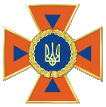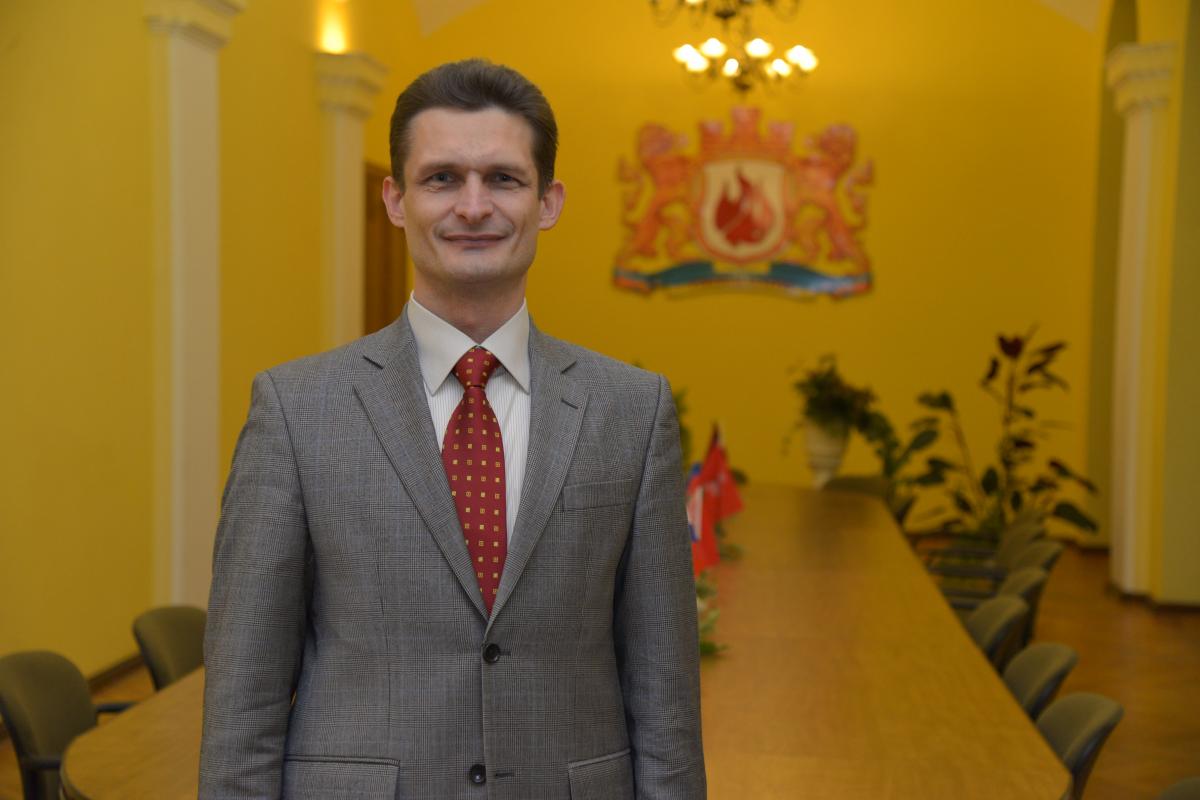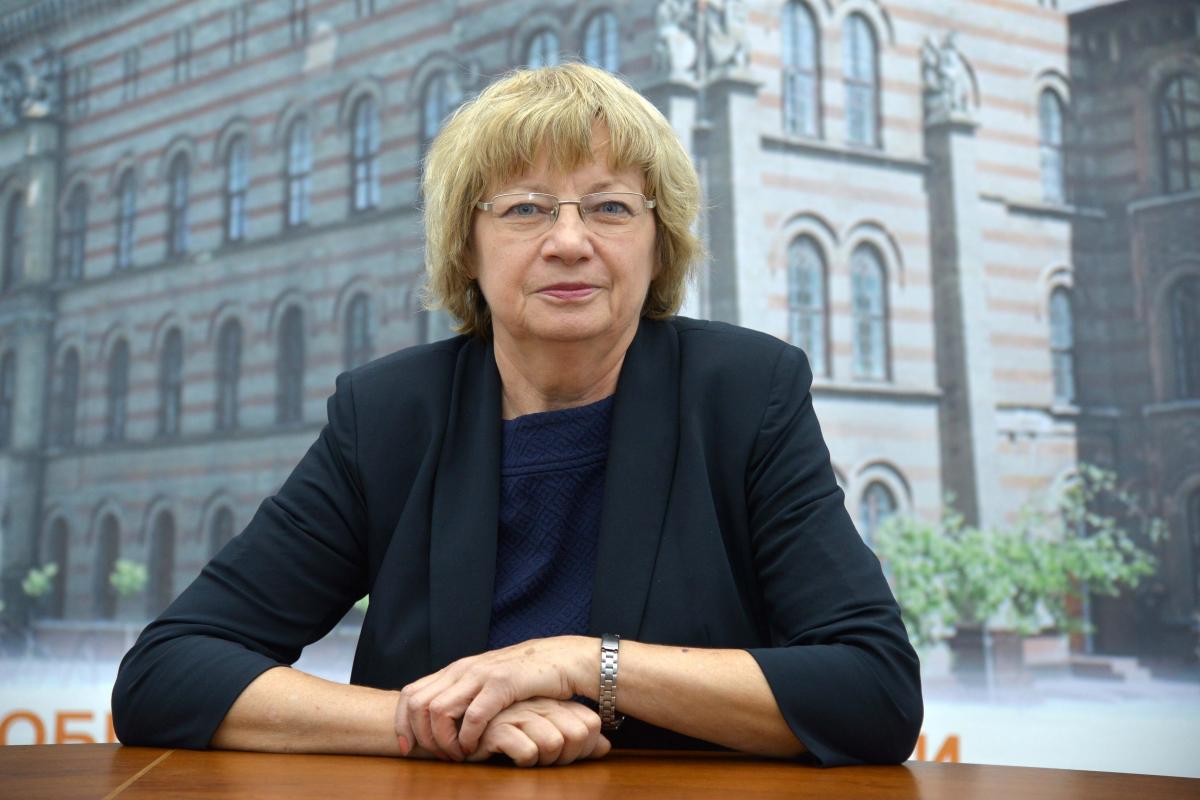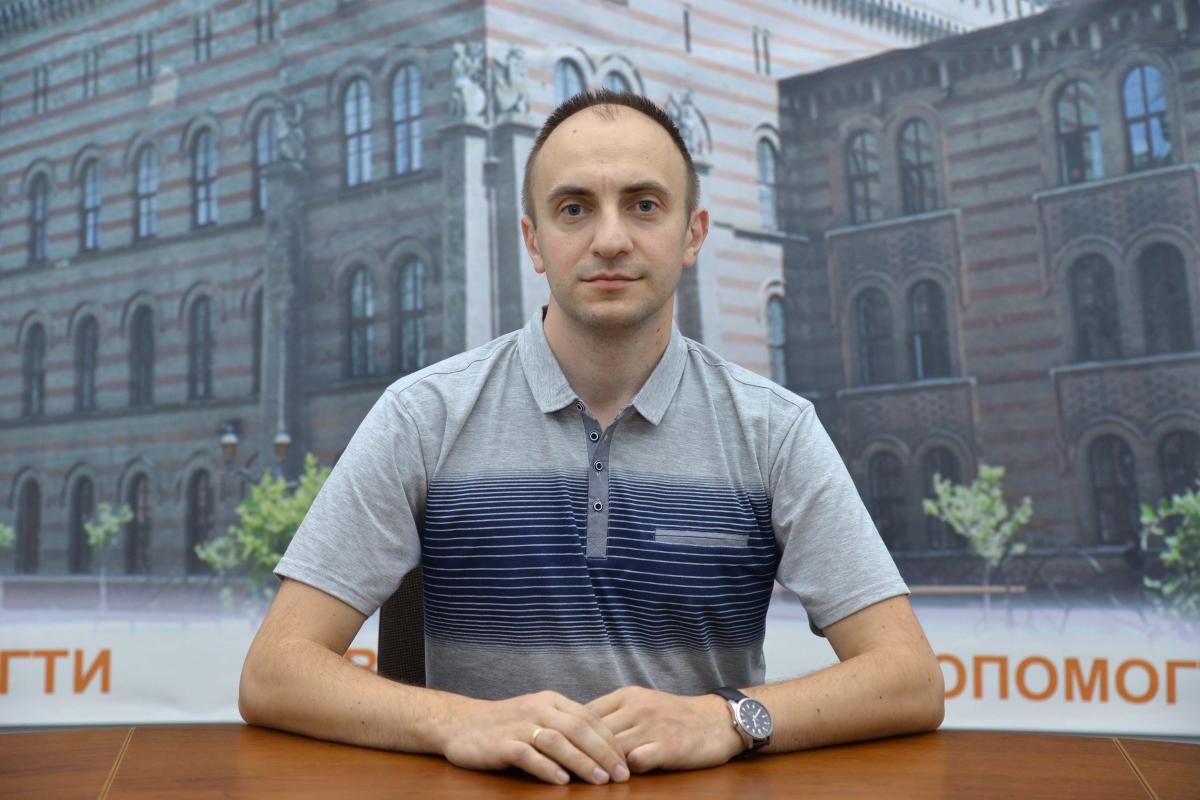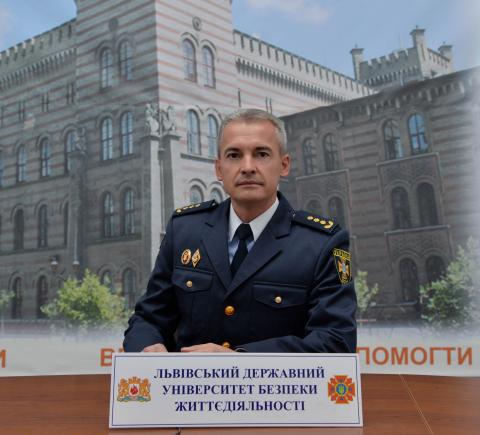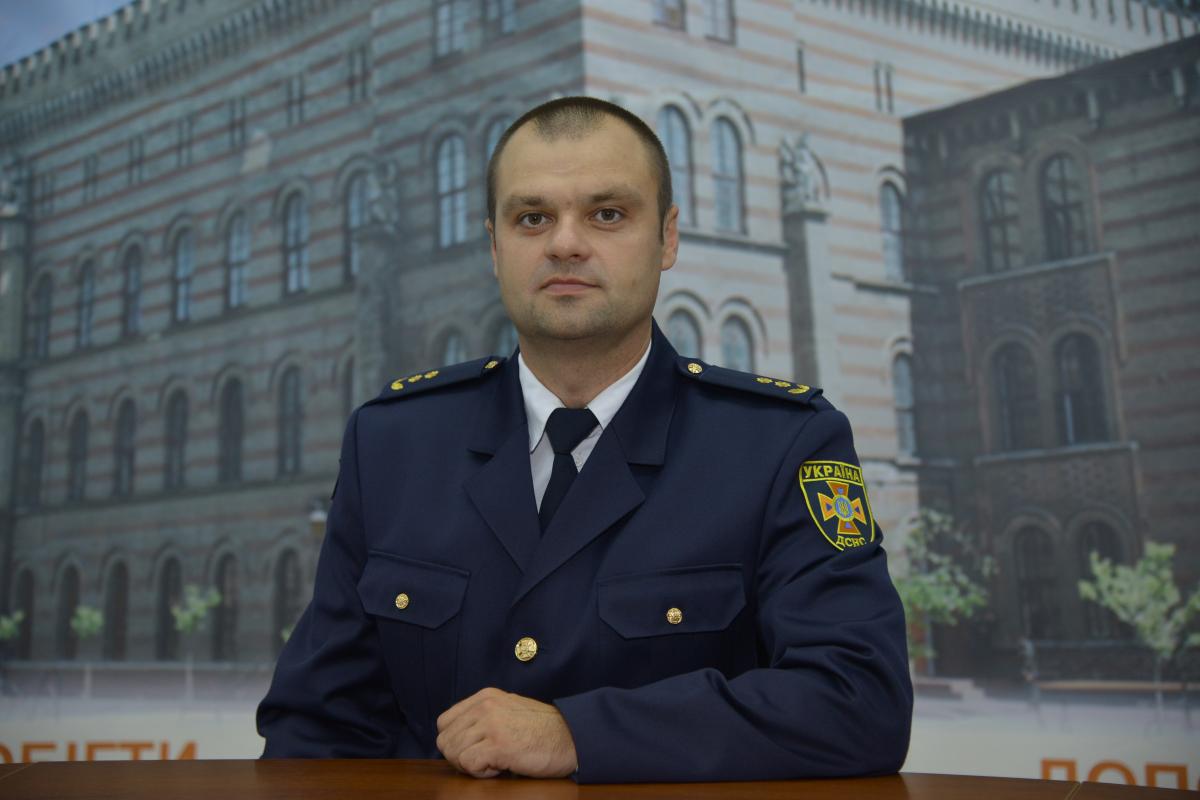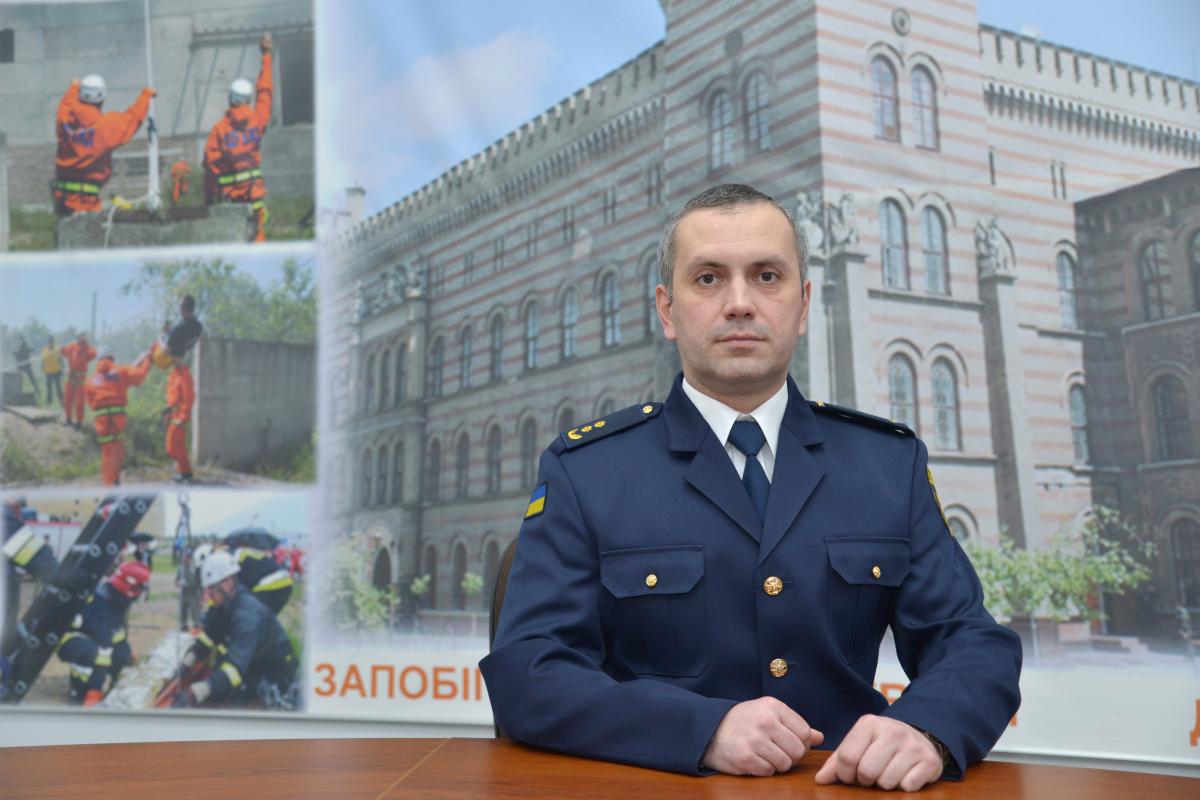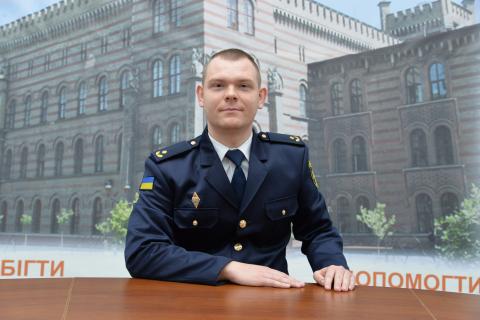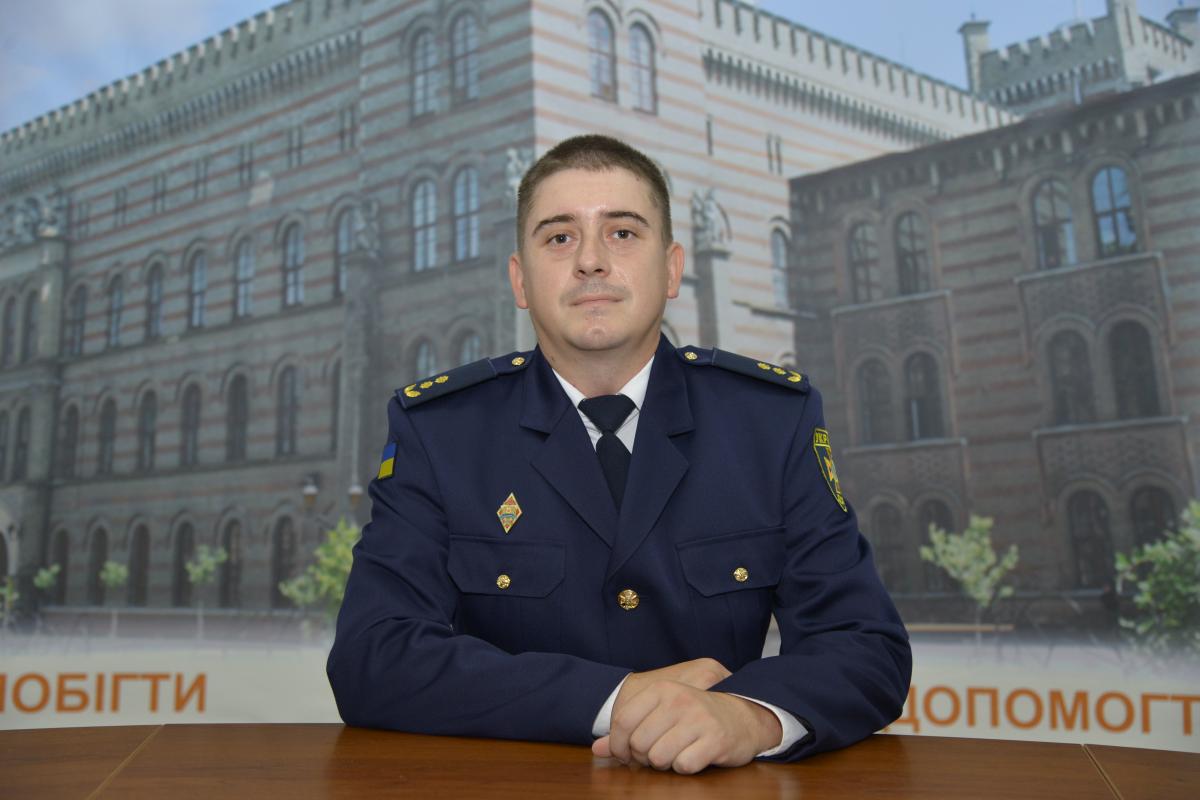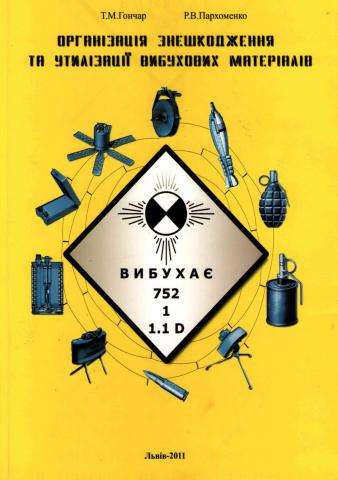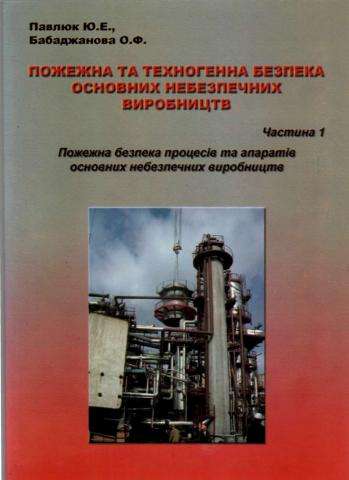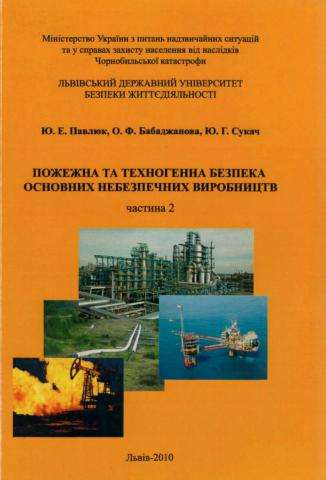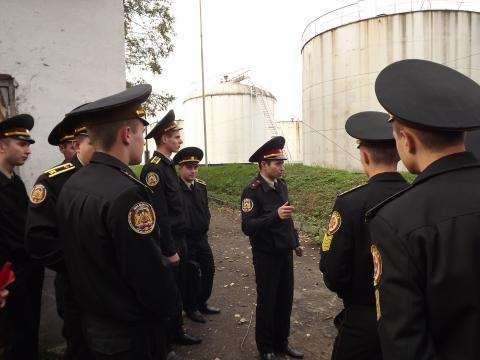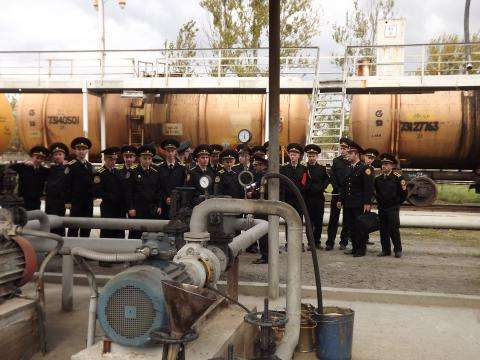Department of Сivil Protection and Сomputer Modeling Ecology-Geophysical Processes
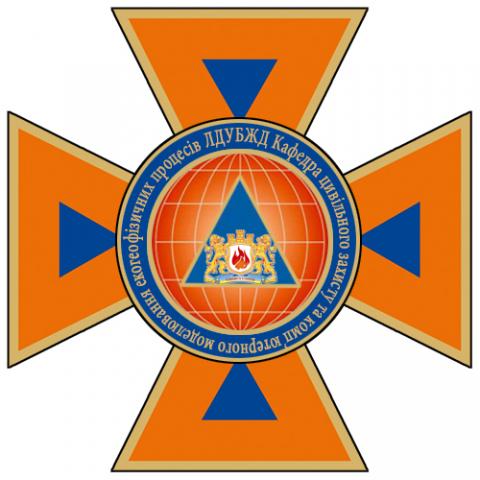
General information
The Department of Civil Protection and Computer Modeling of Ecogeophysical Processes is a graduate of the specialty 263 "Civil Security" and carries out educational activities at two levels of higher education "Bachelor" and "Master" in this specialty.
The department is headed by Lieutenant Colonel of the Civil Protection Service, Doctor of Technical Sciences, Associate Professor Roman Svyatoslavovich Yakovchuk.
The scientific and pedagogical staff of the department has 12 employees, of which:
- 3 doctors of sciences (1 professor of SAC);
- 8 candidates of sciences (5 associate professors of SAC).
History of the department:
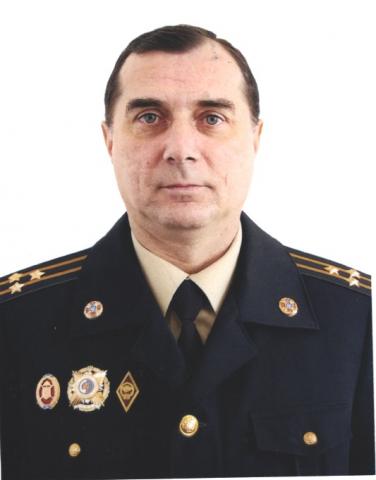
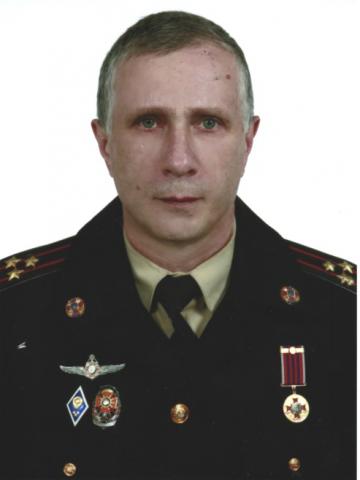
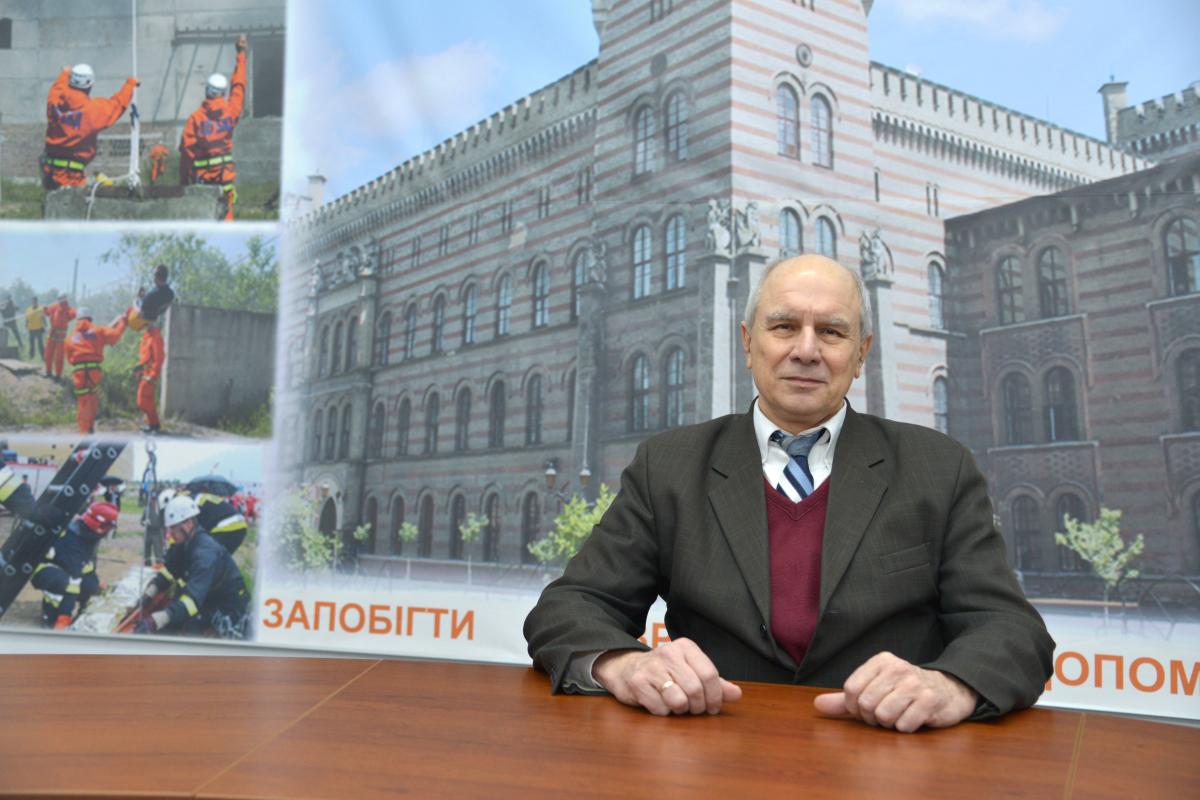
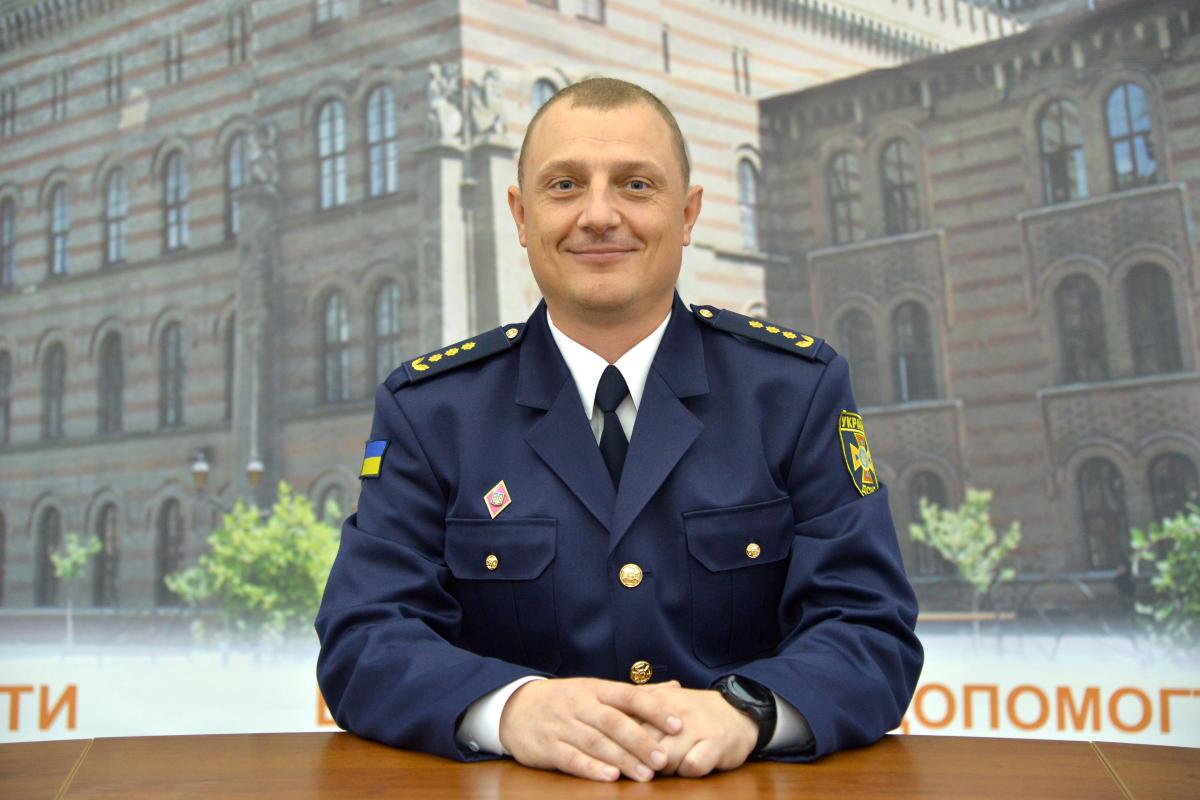
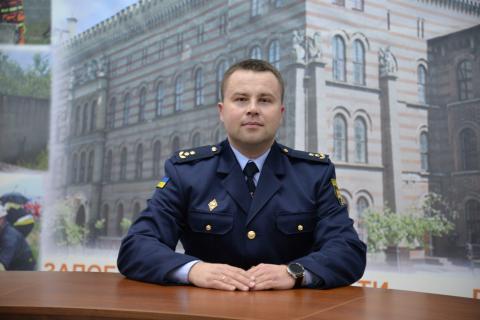
Research and teaching staff:
Courses are taught at the department:
Scientific-methodical work of the department:
To improve the quality of teaching, the Department's teachers have published a number of textbooks in recent years: "Organization of disposal and disposal of explosive materials" (Gonchar T.M., Parkhomenko R.V.), "Fire safety of objects of agroindustrial complex" (Peleshko M.Z., Babadzhanova O.F., Bashinskyi O.I.), “Fire and technogenic safety of major hazardous industries” part 2 (Pavlyuk Y.E., Babadzhanova O.F., Sukach Y.G.), and work continues writing manuals in many other disciplines of the department.
Material-technical base:
For the proper organization of the educational process at the department there are modern laboratories and computer classes, which are equipped with computers, interactive and graphic tablets, interactive whiteboards, multimedia equipment, 3D printer and other peripherals.
The department has a laboratory of computer graphics (room 312), which is involved in educational and research activities in the field of image processing and recognition, modeling of complex multi-parameter objects of processes and phenomena, 3D modeling and 3D printing, and UX-design . The courses "Engineering and Computer Graphics", "Computer Modeling of Technical Objects", "Applications of Computer Graphics and Image Processing", "Fundamentals of Graphic Design and Project Graphics", "Fundamentals of 3D Modeling" are taught on the basis of the laboratory. "," WEB-technologies and WEB-design "and many others.
In 2019, the laboratory was completely modernized with the installation of a WanHao Mini 3D printer and personal computers based on CPU s 1151 DC Pentium G5400 3.7GHz processors.


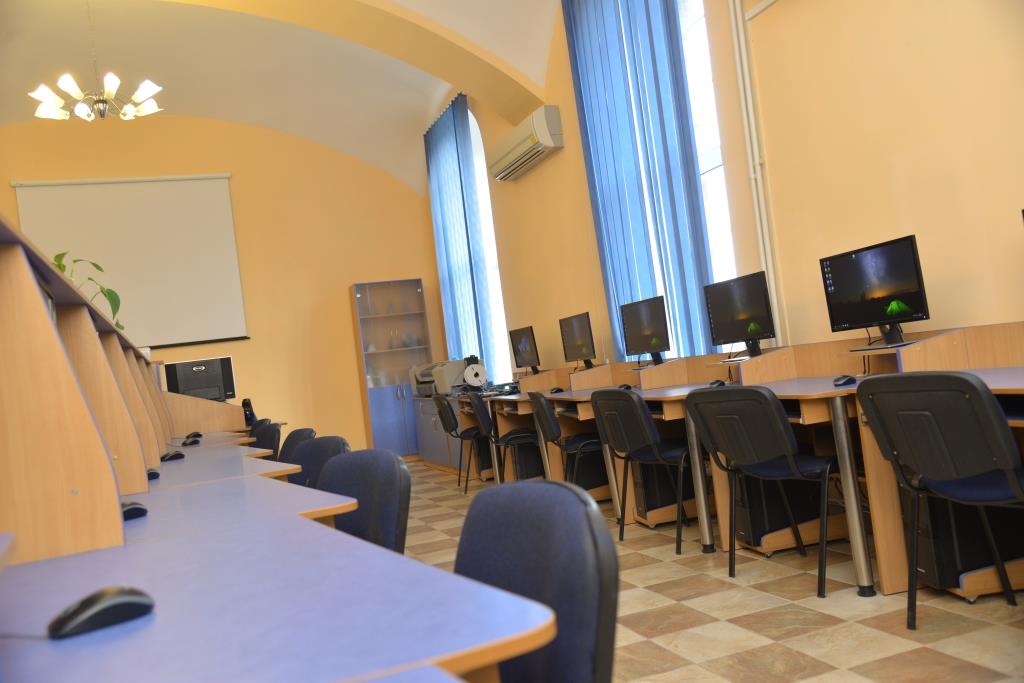
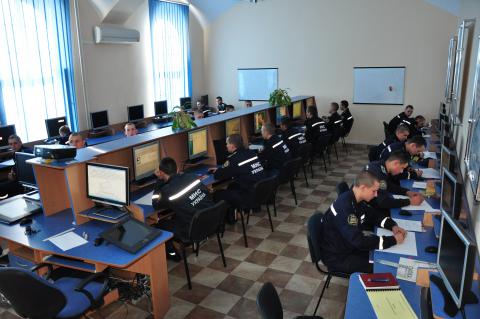
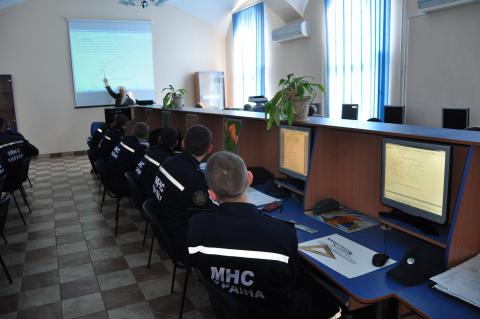

The laboratory is designed for 30 workstations equipped with modern PCs with software that allows you to create 2D and 3D graphics, electronic and UX-design, as well as create WEB-resources. Teachers' workplaces are equipped with interactive (Smart Sympodium) and graphic (Wacom DTF-510) tablets, which adapts the processes of teaching new theoretical material to modern requirements and eliminates the need to use a classic board. Graphic tablets of A5 format (Wacom PTZ-630) are installed at the students' workplaces. The laboratory is equipped with appropriate multimedia and peripheral means for displaying computer graphics images (multimedia projector, HP DesignJet 500 ps plotter, Epson AcuLaser CX11NF color printer). A feature of the laboratory is a 3D printer on which students and cadets can reproduce their projects in real models.
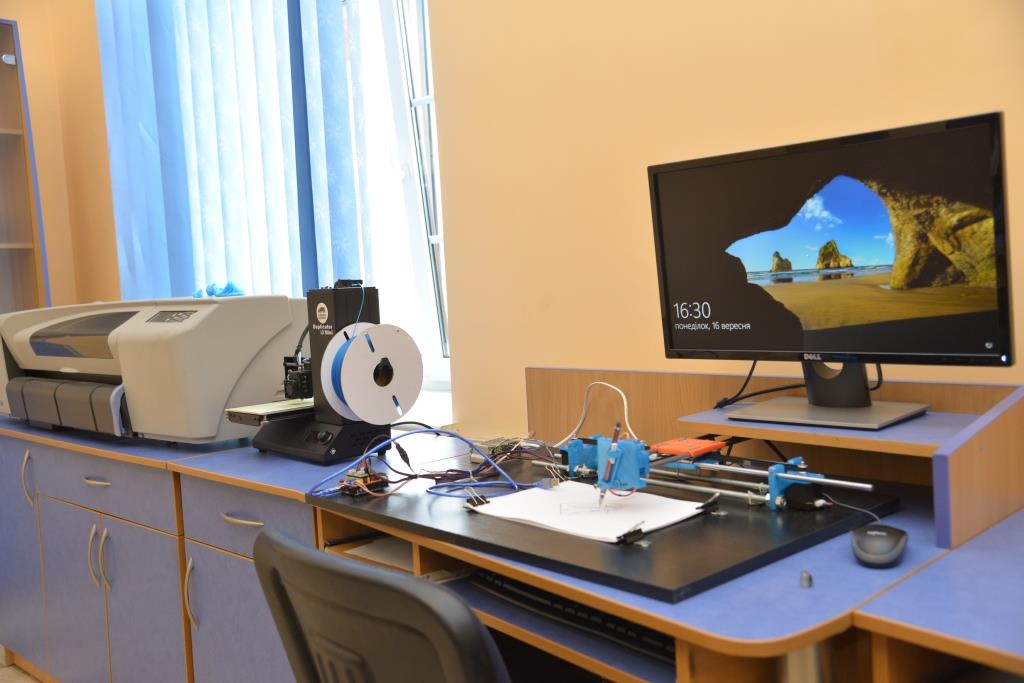
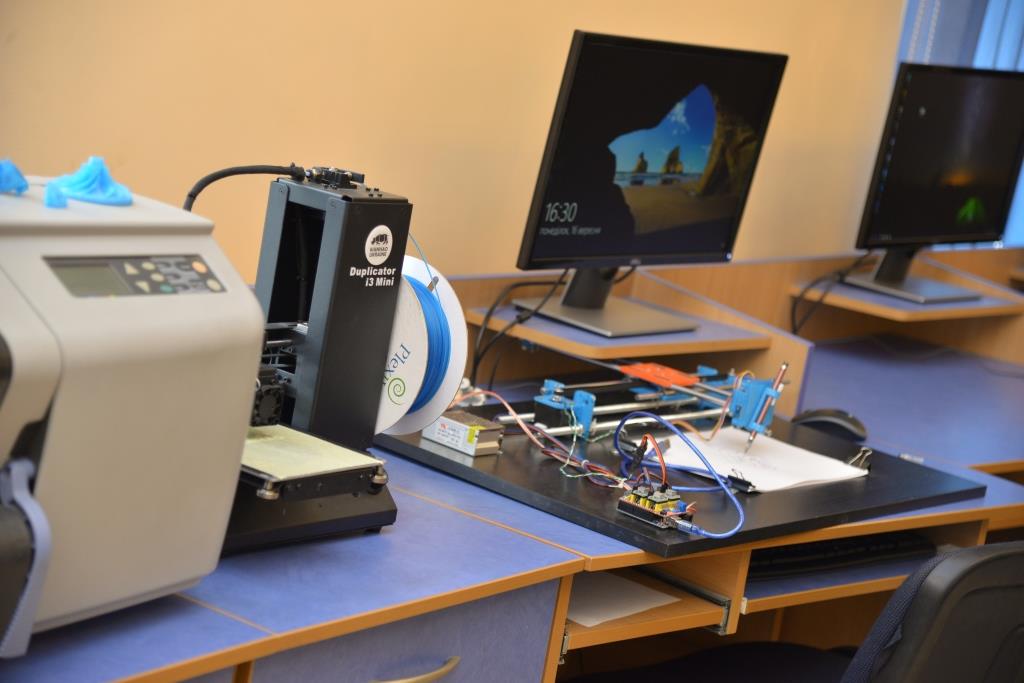

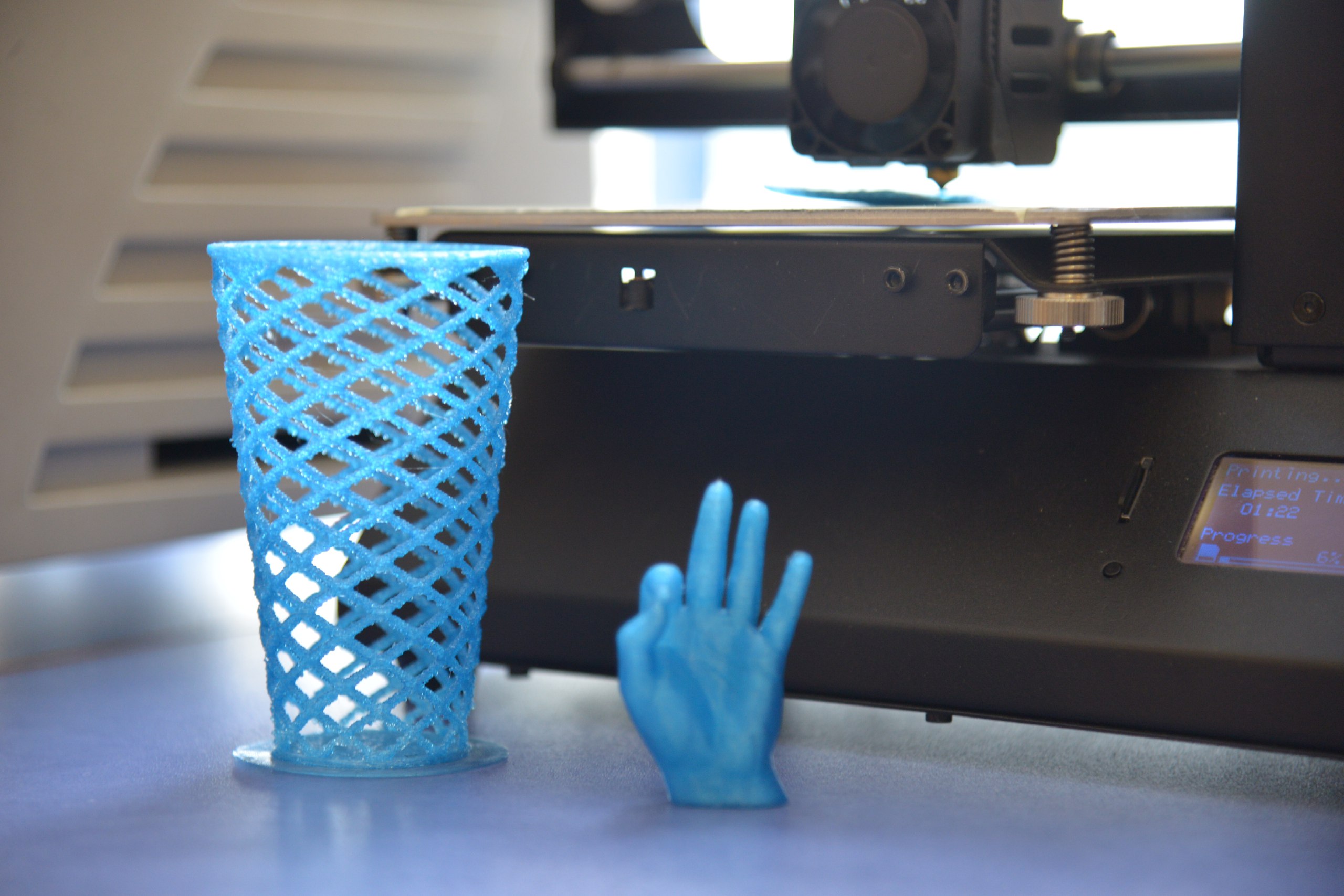
The teaching of embedded-direction (embedded systems development) and telecommunications courses is organized in the laboratory of computer circuitry and telecommunication systems (room 224). On the basis of the laboratory, which is equipped with 14 PCs Dell Y253N C2D T52, courses are taught "Computer Circuitry and Computer Architecture", "Robotics", "Telecommunication Systems and Communications of SES of Ukraine", "Operations and Dispatch Management Systems" , "Automated control and communication systems", etc.
To conduct classes in the field of telecommunications systems, the laboratory is equipped with visual means of wiring and radio communication, used by civil defense units (Motorola radio stations, Kenwood, network switches, etc.). Particular attention is paid to the study of promising types of communication and review of modern information transmission systems used by leading countries in Europe and North America.
For laboratory work on computer circuitry or robotics, the training room is equipped with appropriate workstations with the possibility of using laboratory stands, computing hardware platforms (Arduino), measuring instruments (USB 60 MHz oscilloscopes, M890 multimeters, etc.) and the corresponding software installed on the PC.
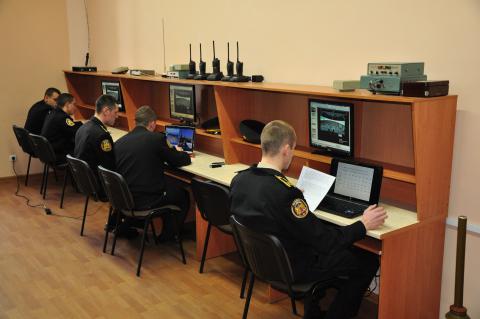

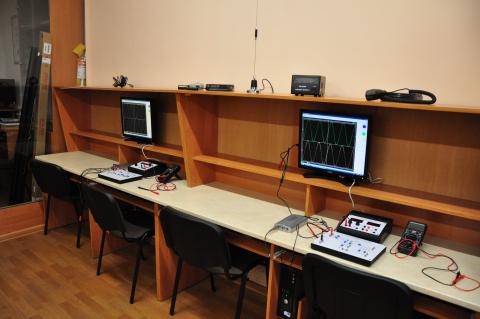
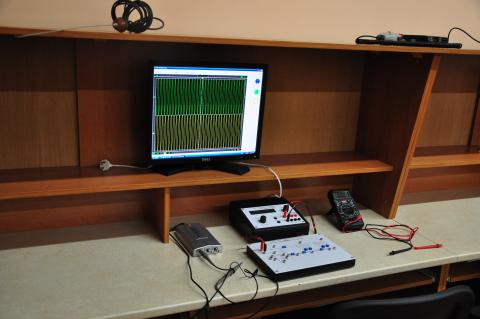
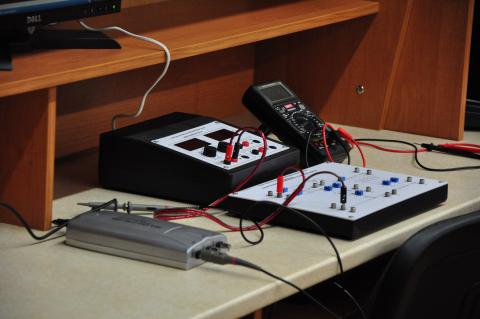
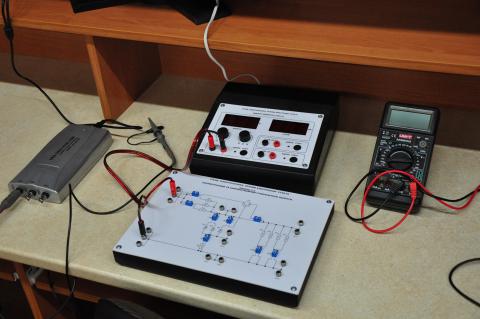
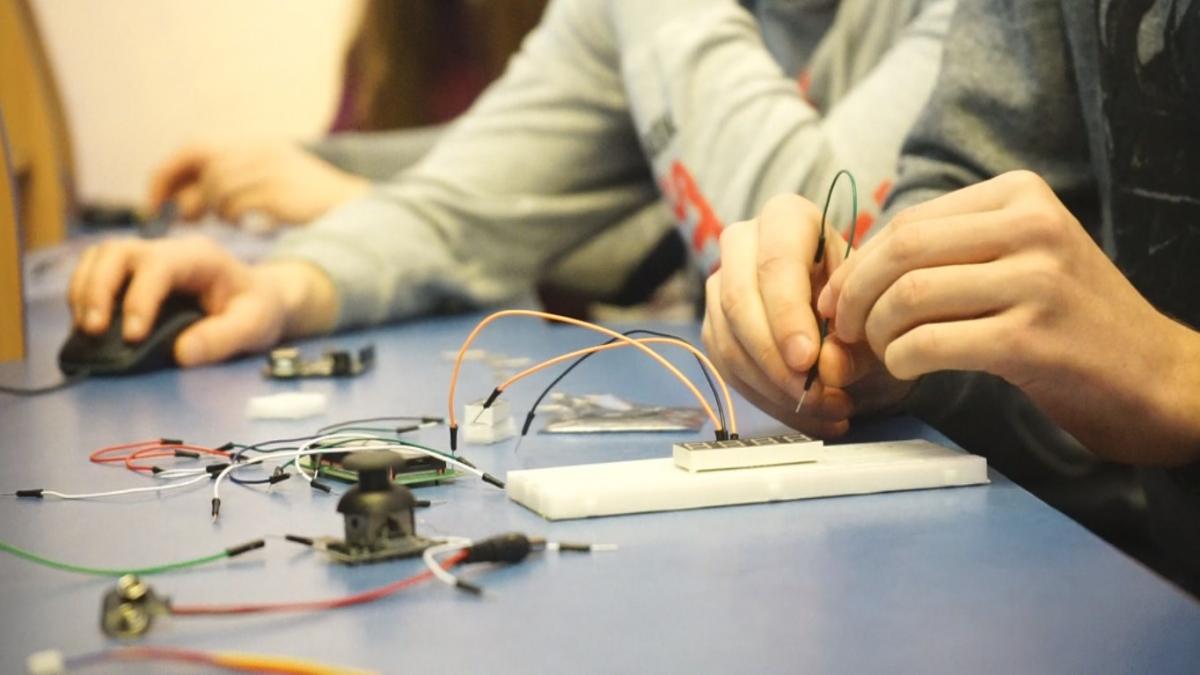

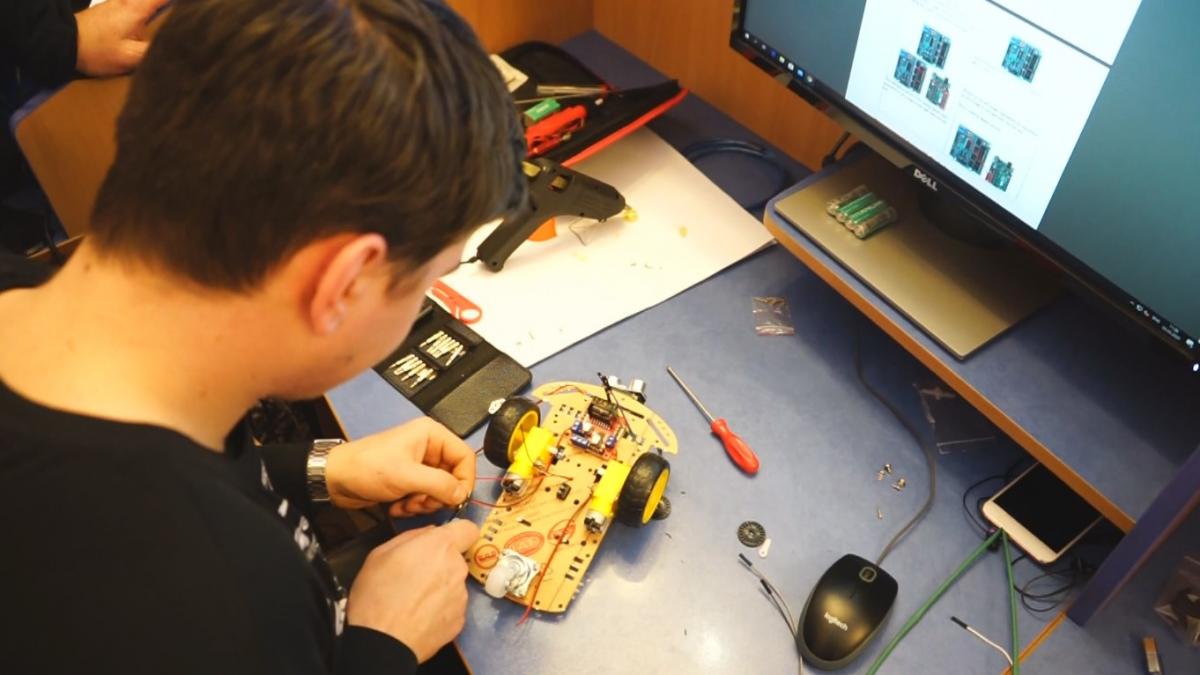
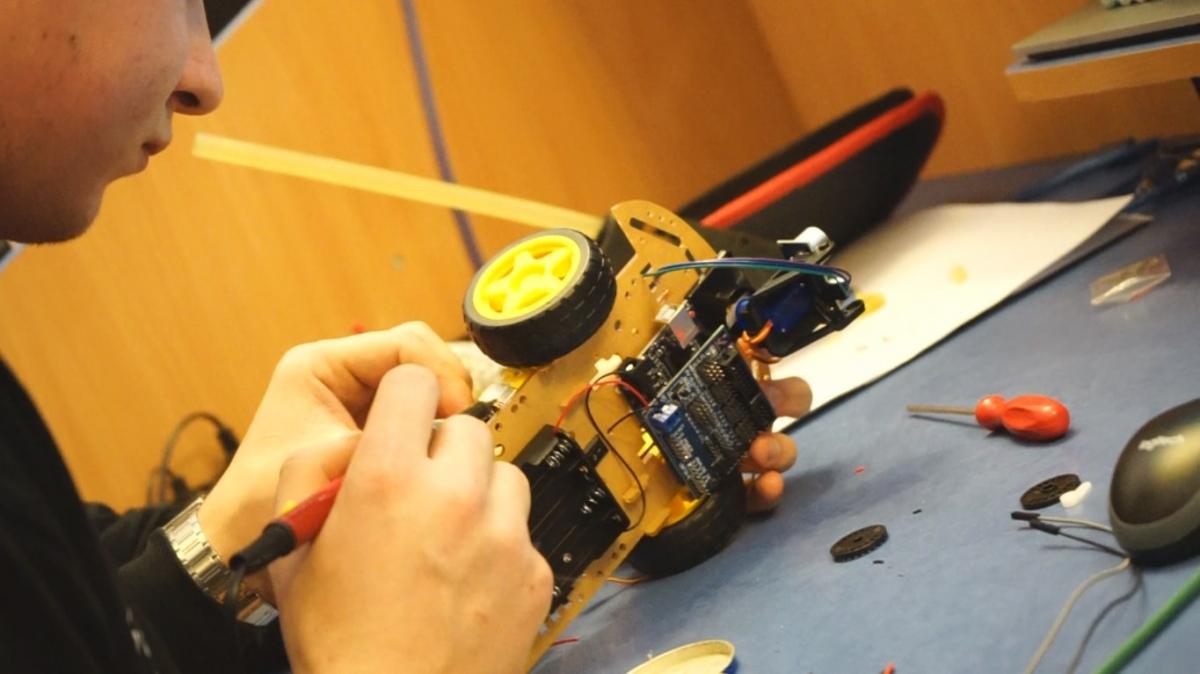
In the laboratory of computer circuitry and telecommunication systems, an analogue of the center of operational and dispatching service for training specialists for communication points "System 112" of the SES of Ukraine has been created.
In the process of training future specialists in computer science, the department provides teaching disciplines on the basis of the Center for Intelligent Modeling of a Secure Future (rooms 331-334), which is equipped with four state-of-the-art computer classrooms equipped with computers (Intel core TM i5). interactive whiteboards, visualization tools, etc. The courses provide "Mathematical Methods of Operations Research", "Systems Analysis and Decision Theory", "Discrete Mathematics", "Algorithms and Data Structures", "Decision Theory", "Decision Support Systems" and other disciplines.
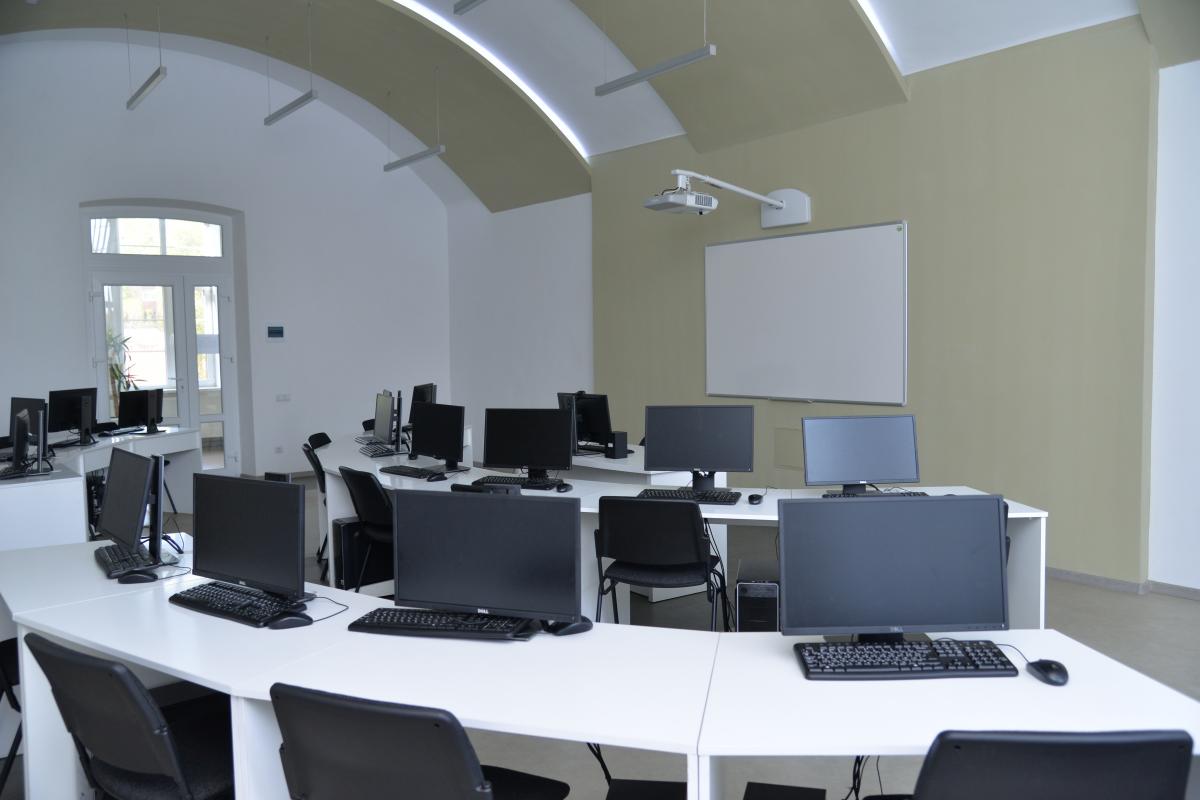
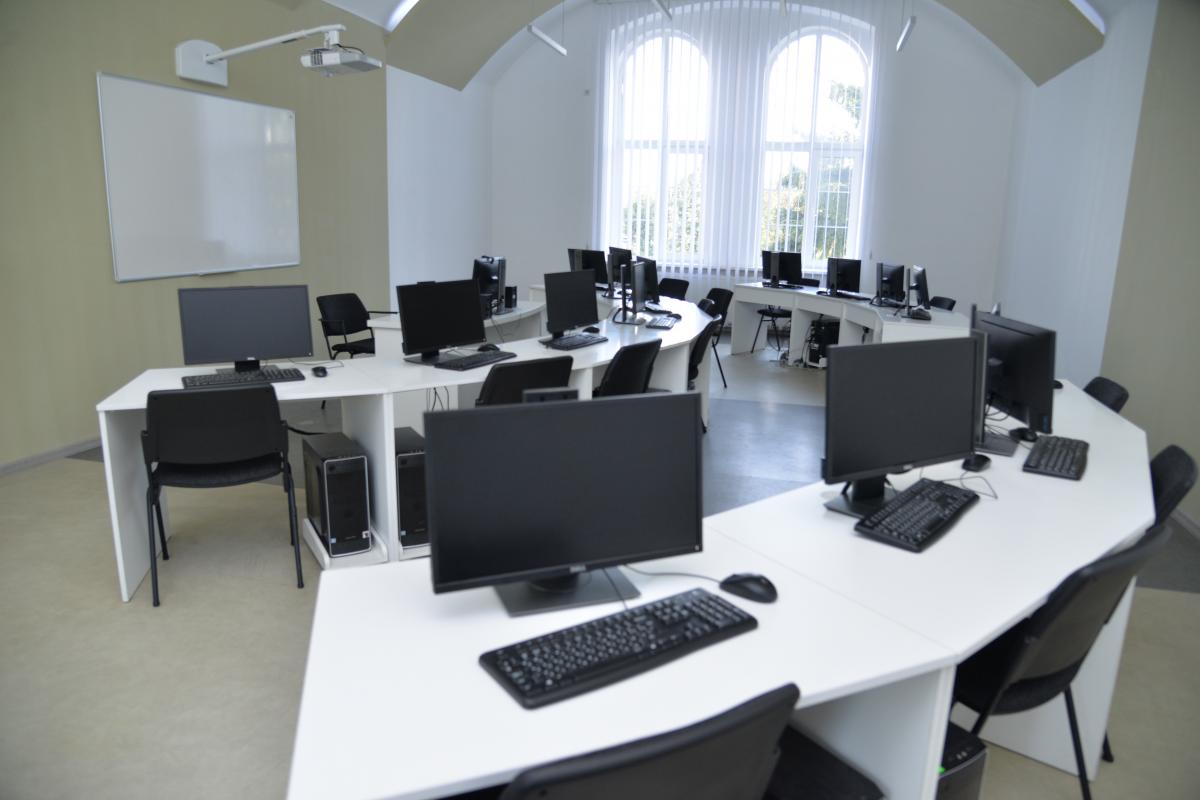
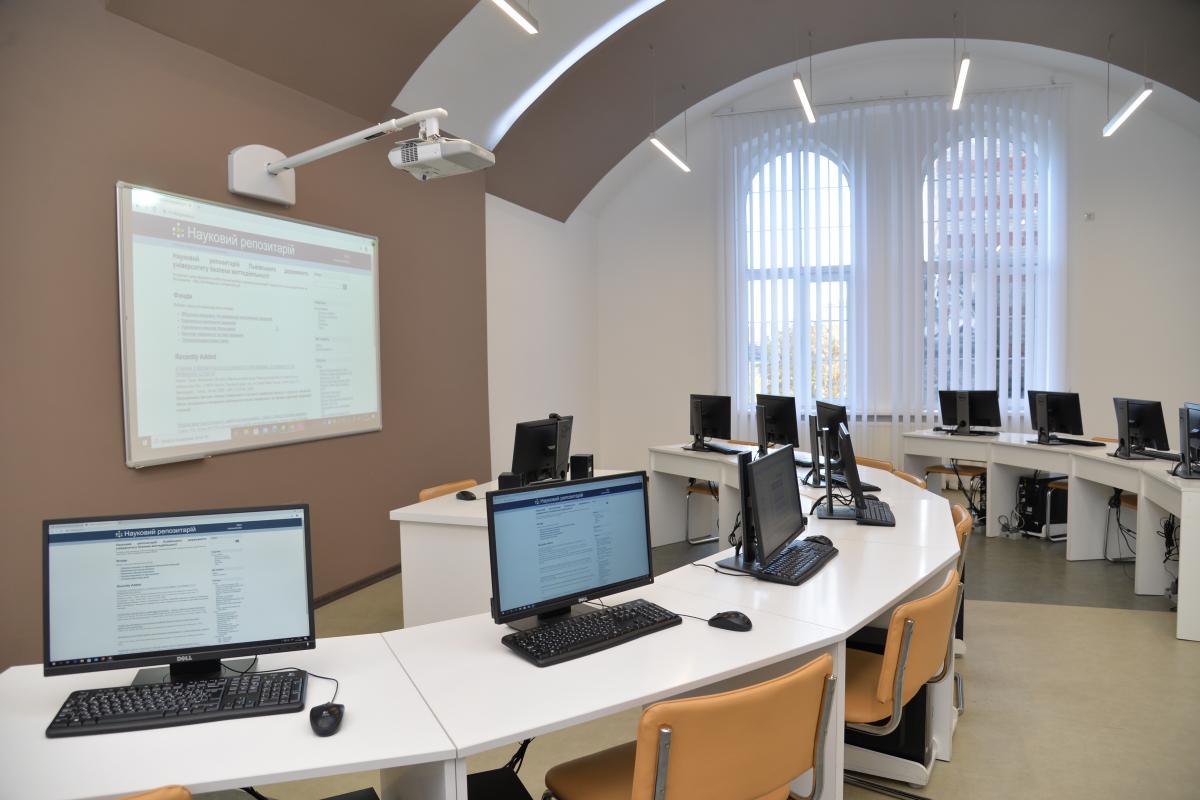
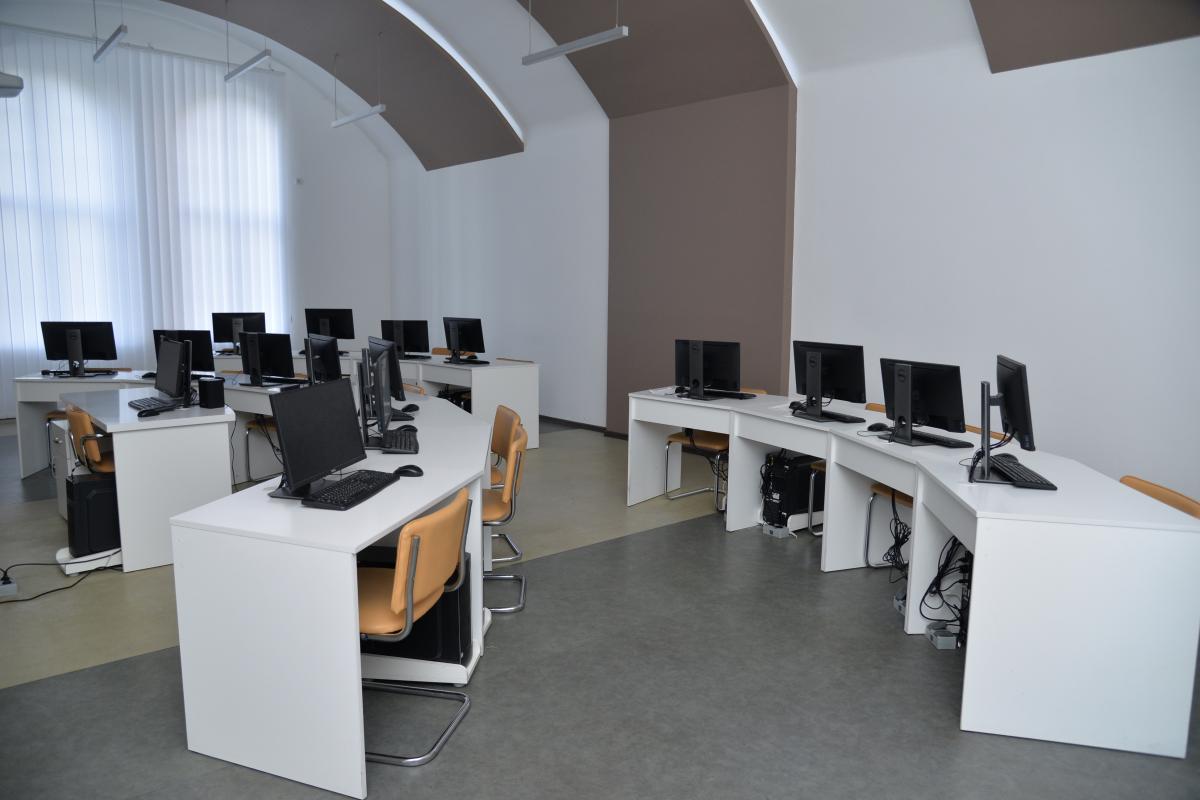

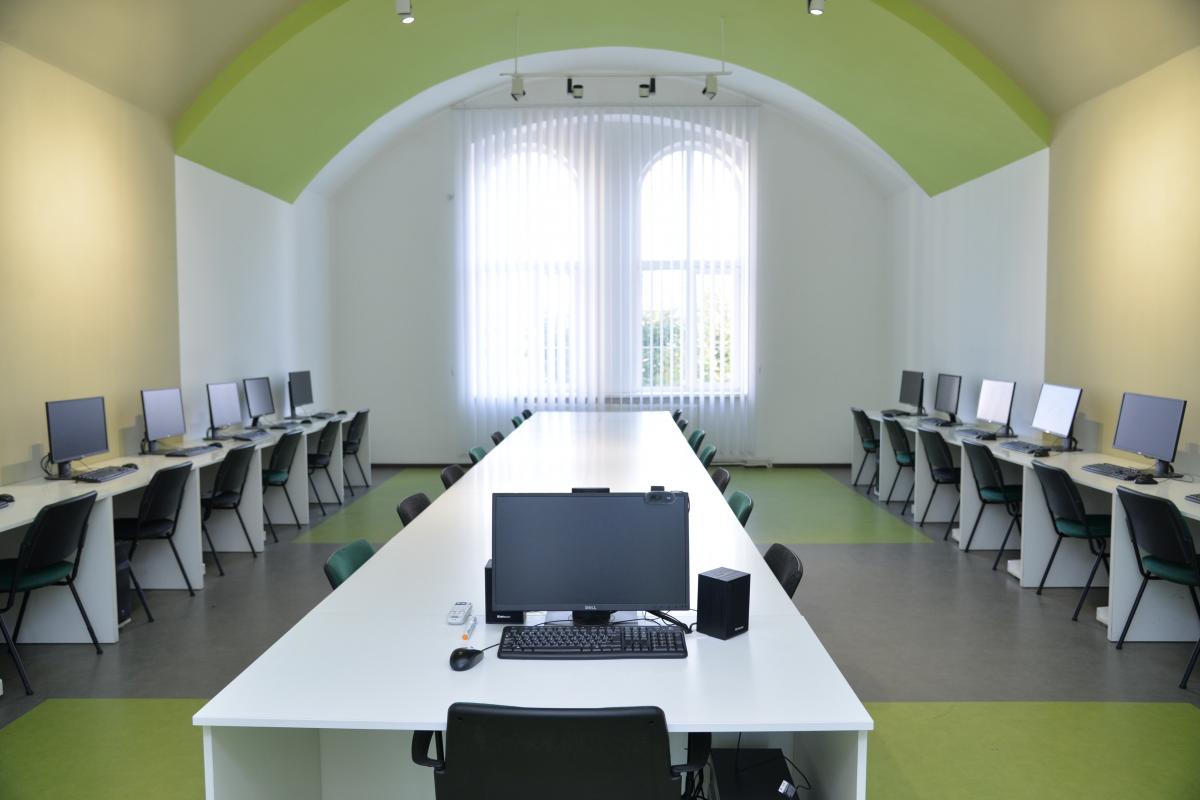
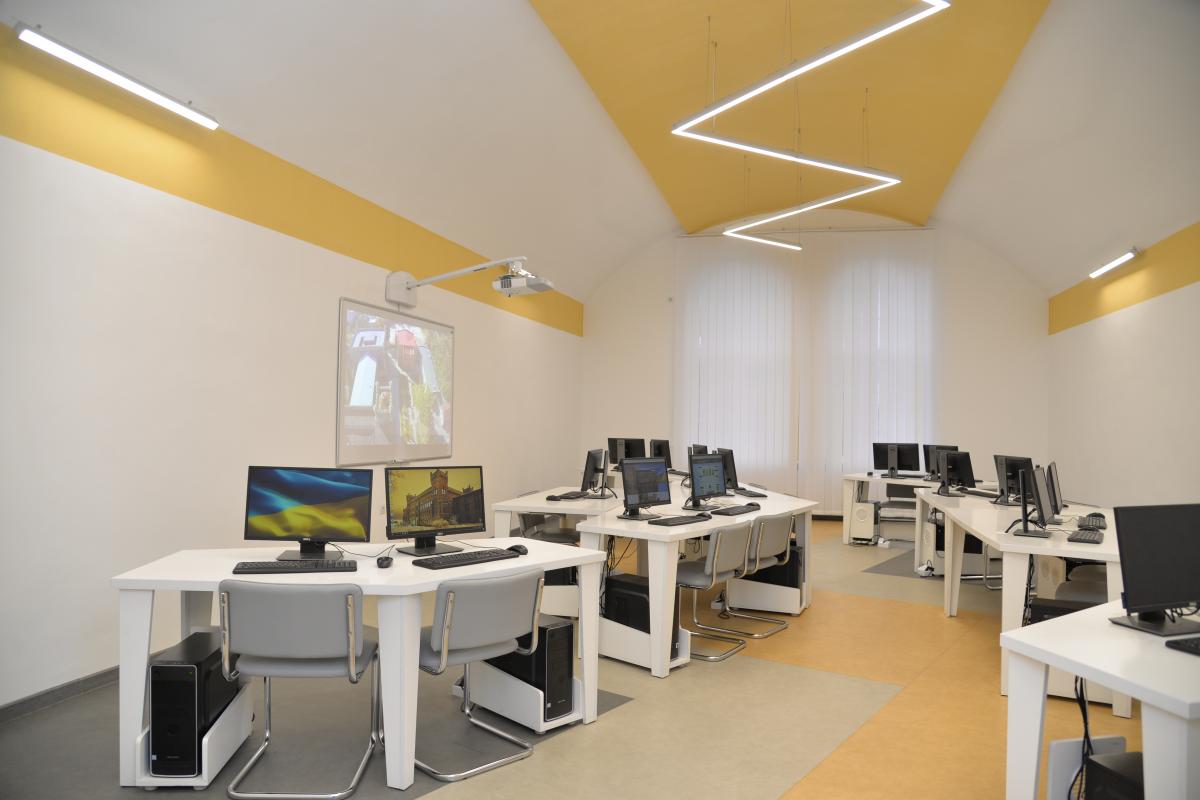
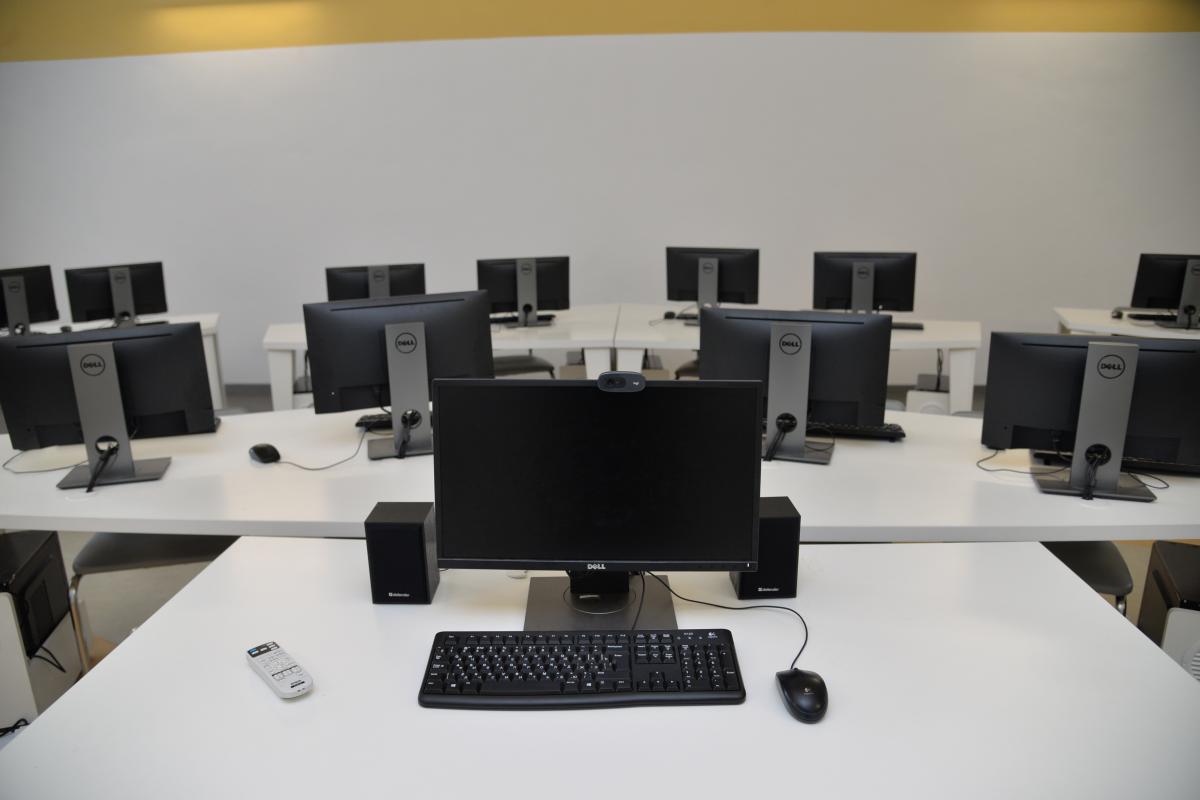

In 2020, the material and technical base of the university, including the department, was replenished with a complex of laboratories of information systems and technologies in the field of digital security (rooms 301-304). The complex includes 4 new and modern laboratories, the technical equipment of which allows for high-level training in both contact and distance learning. In particular, the Laboratory of Social Communications and Information Activities (room 301) aims to develop social skills and communication skills in students through training, teamwork and presentation of their own projects. The Laboratory of Information Systems Design and Security (room 302) is designed to develop future specialists' skills in designing and developing Web applications with a certain level of security against unauthorized intrusions. The Laboratory of Information Systems and Programming Technologies (room 303) aims to develop future computer science skills in software development, decision support systems and information systems to improve the efficiency of the rescue service. Laboratory of digital methods of information processing and protection (room 304) is designed to form in future professionals the basic concepts of protection of corporate networks and software products.
In total, the complex of laboratories is equipped with 70 workstations with modern computer equipment (Lenovo V15 IIL Iron Gray 15.6 and PC based on Intel Pentium Gold G5400 CPU 3.70GHz). All computer classes of the complex are equipped with a system of remote access and management of the student's workplace, multimedia equipment and other technical means of learning, which significantly improve the quality and comfort of classes. The laboratories offer courses on "Object-Oriented Programming", "Computer Networks", "Databases and Knowledge", "Client-Server Programming", "Object Modeling of Software Systems" and other courses focused on for the design, development and maintenance of information systems.
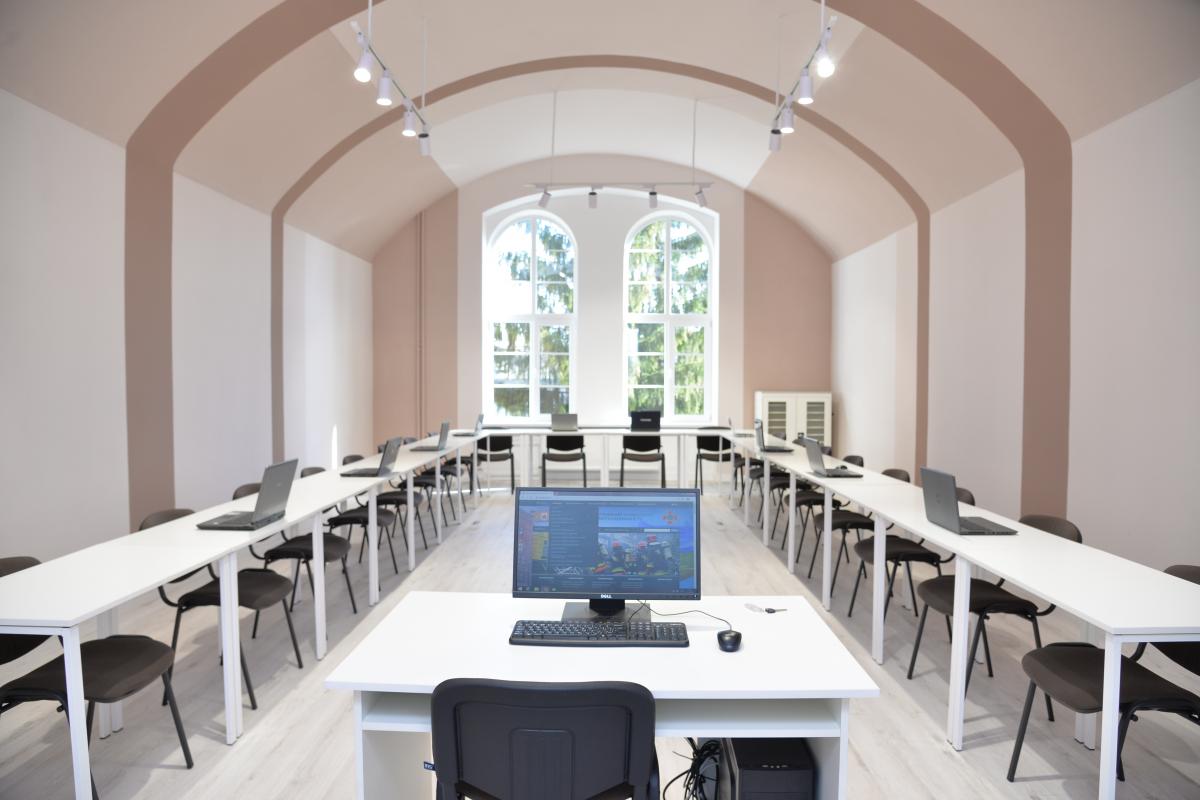
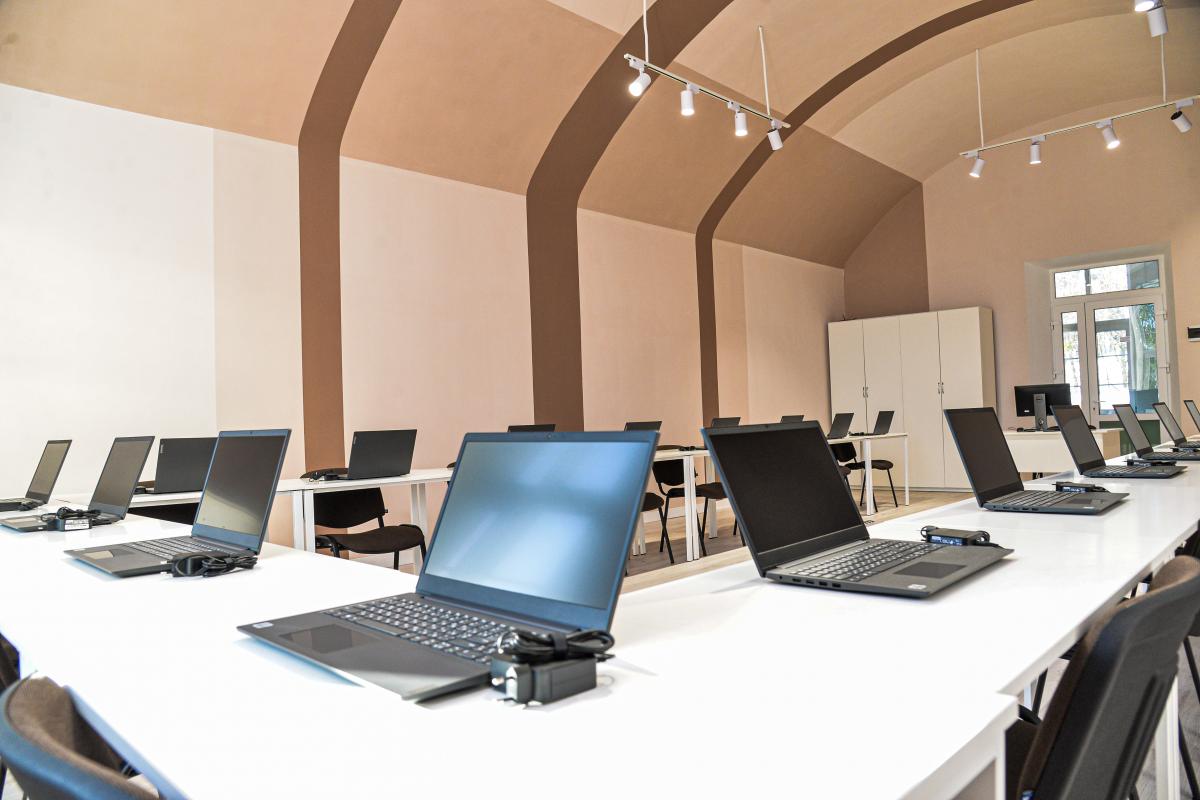
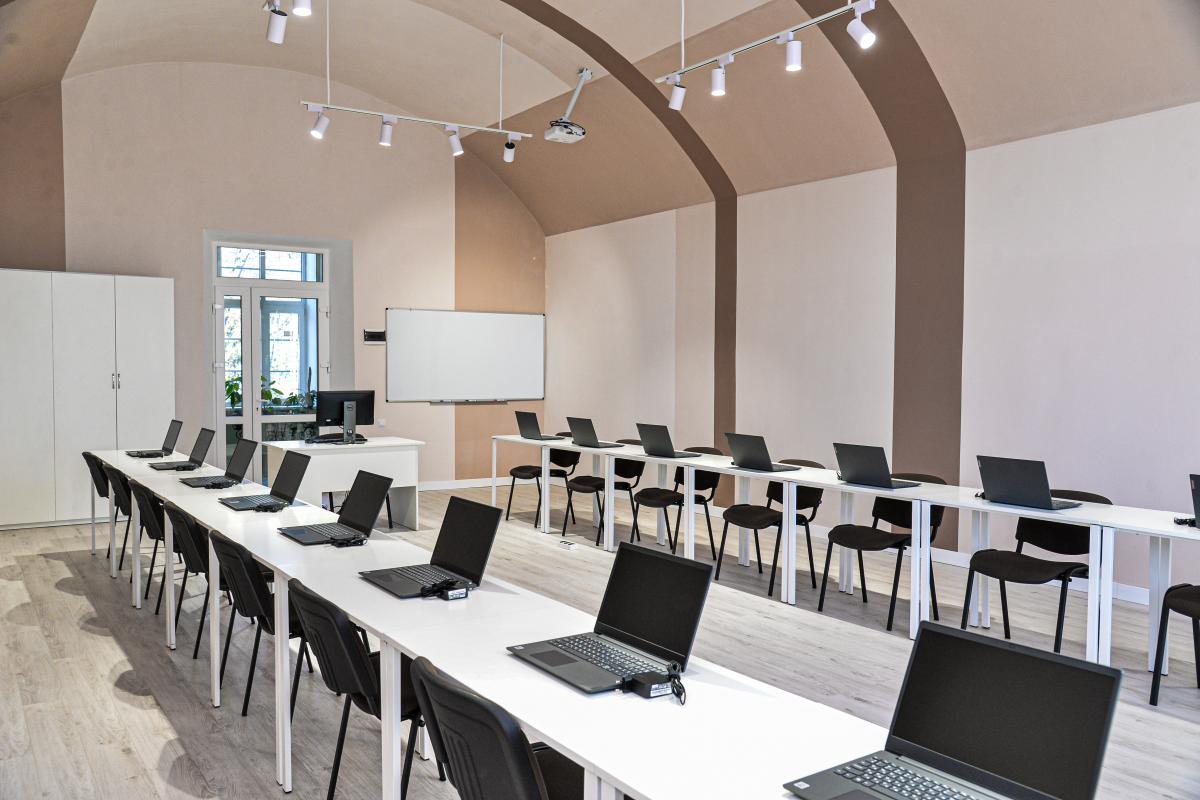
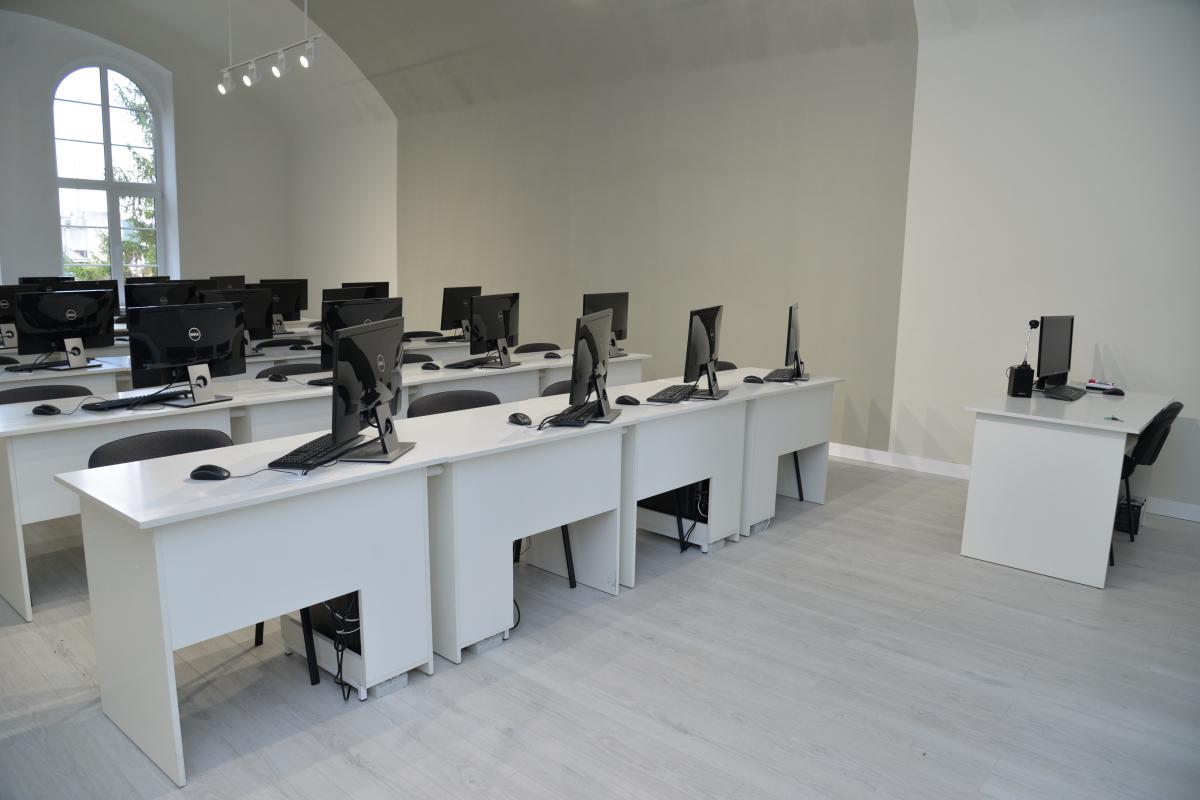
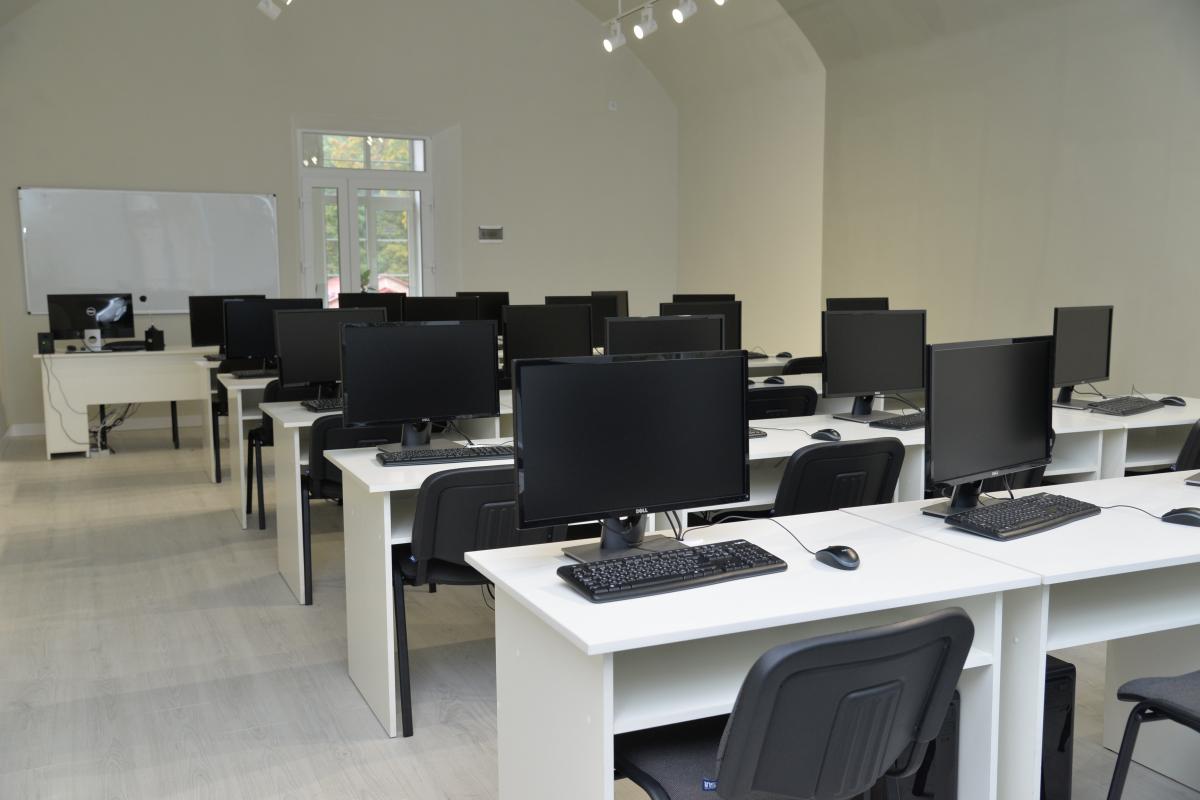
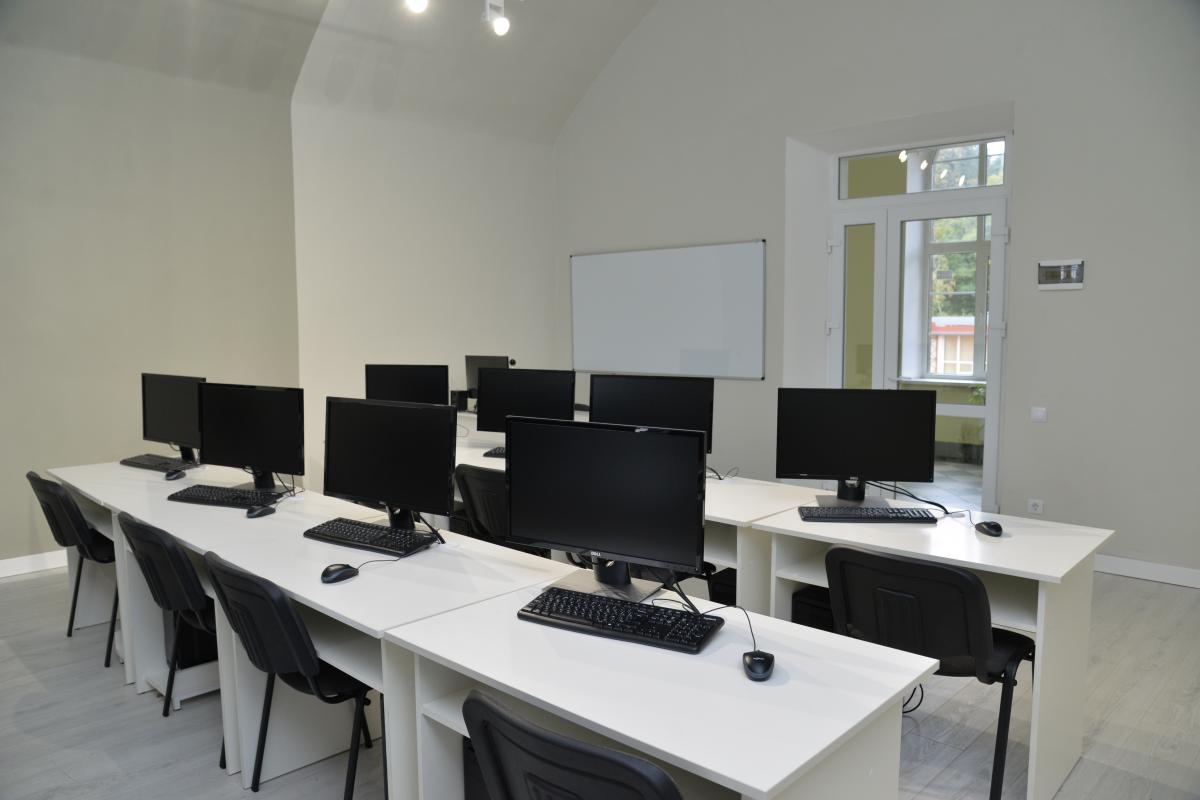
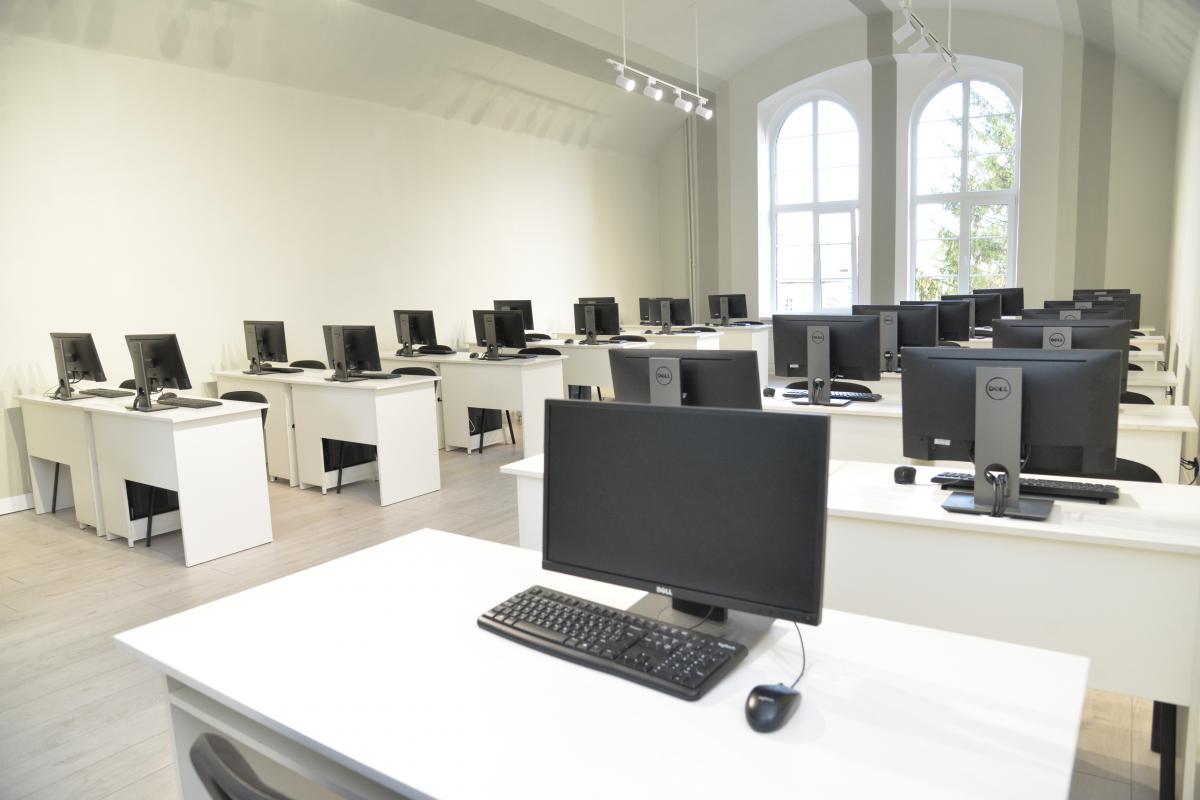
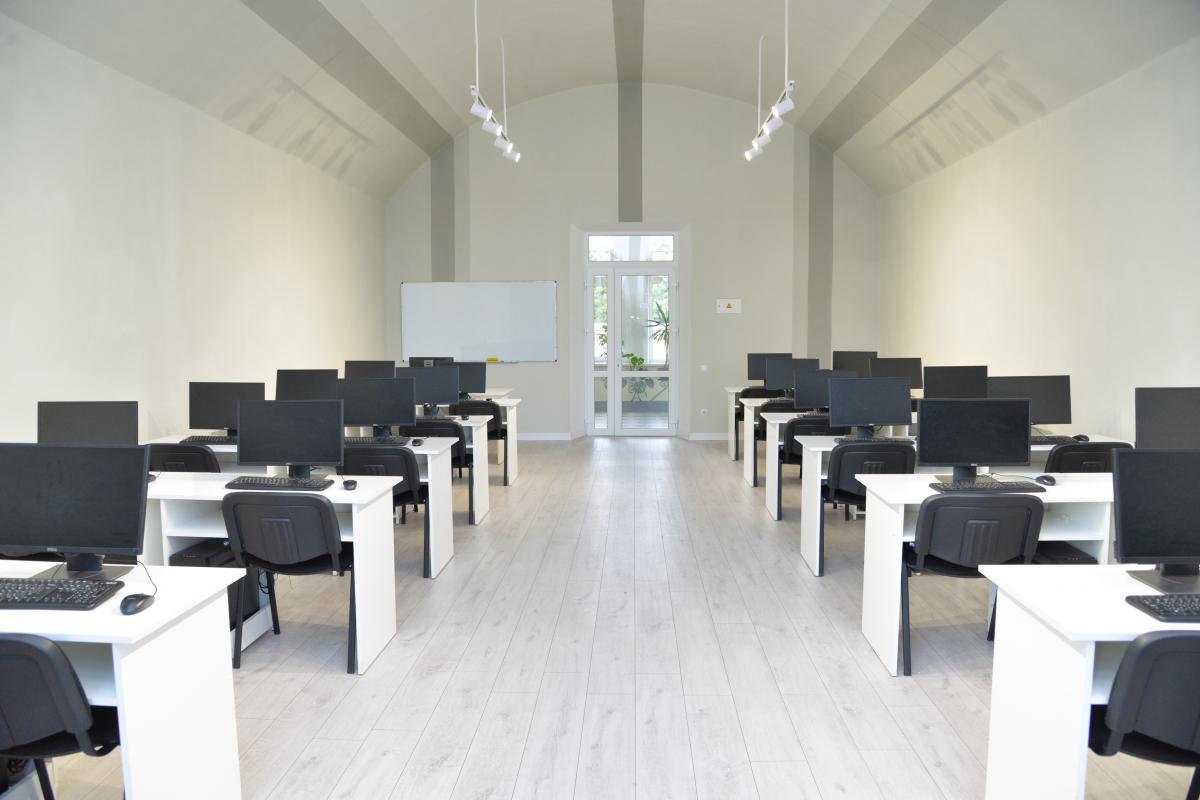
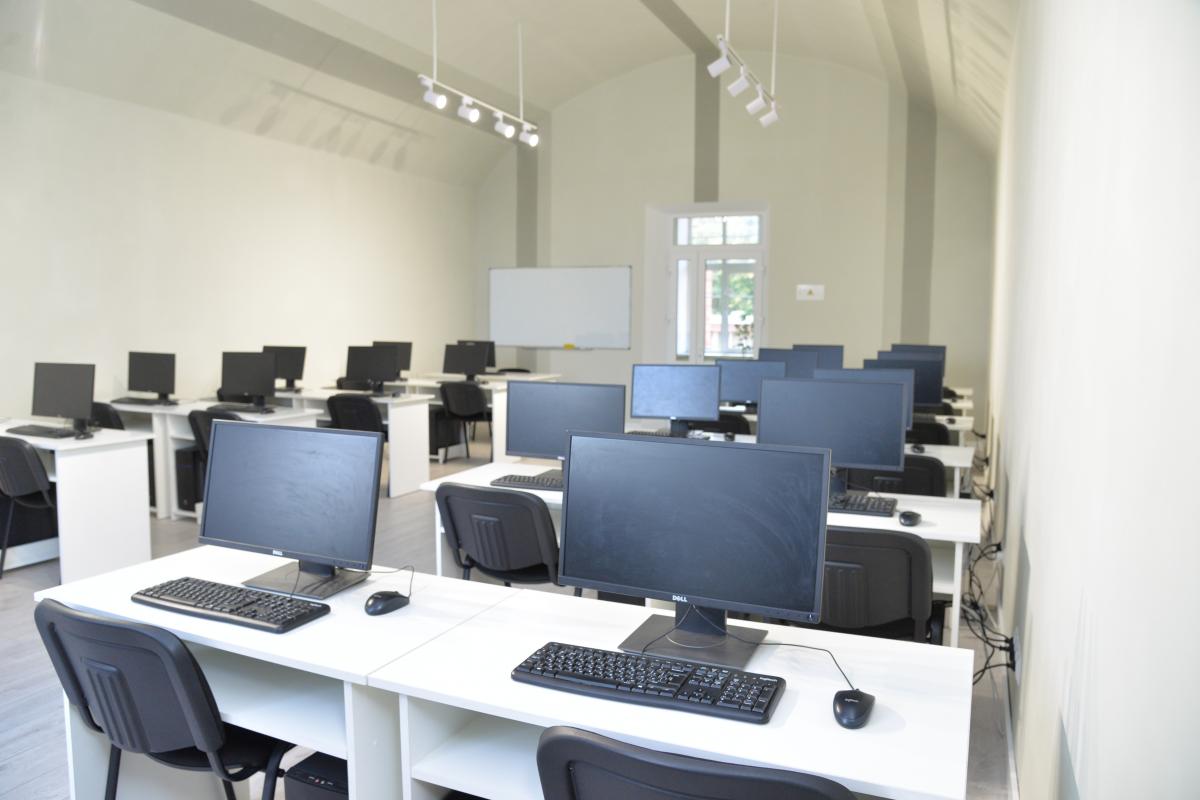
The department also manages a multimedia educational complex (room 210) for 31 workstations with software that allows modeling and software development at different stages of the life cycle of its development. In 2020, the technical equipment of the training complex was completely updated, and modern PCs based on Intel Pentium Gold G5420 CPU 3.80GHz processors were installed. In the study room, students study professional courses as part of individual groups or teams.
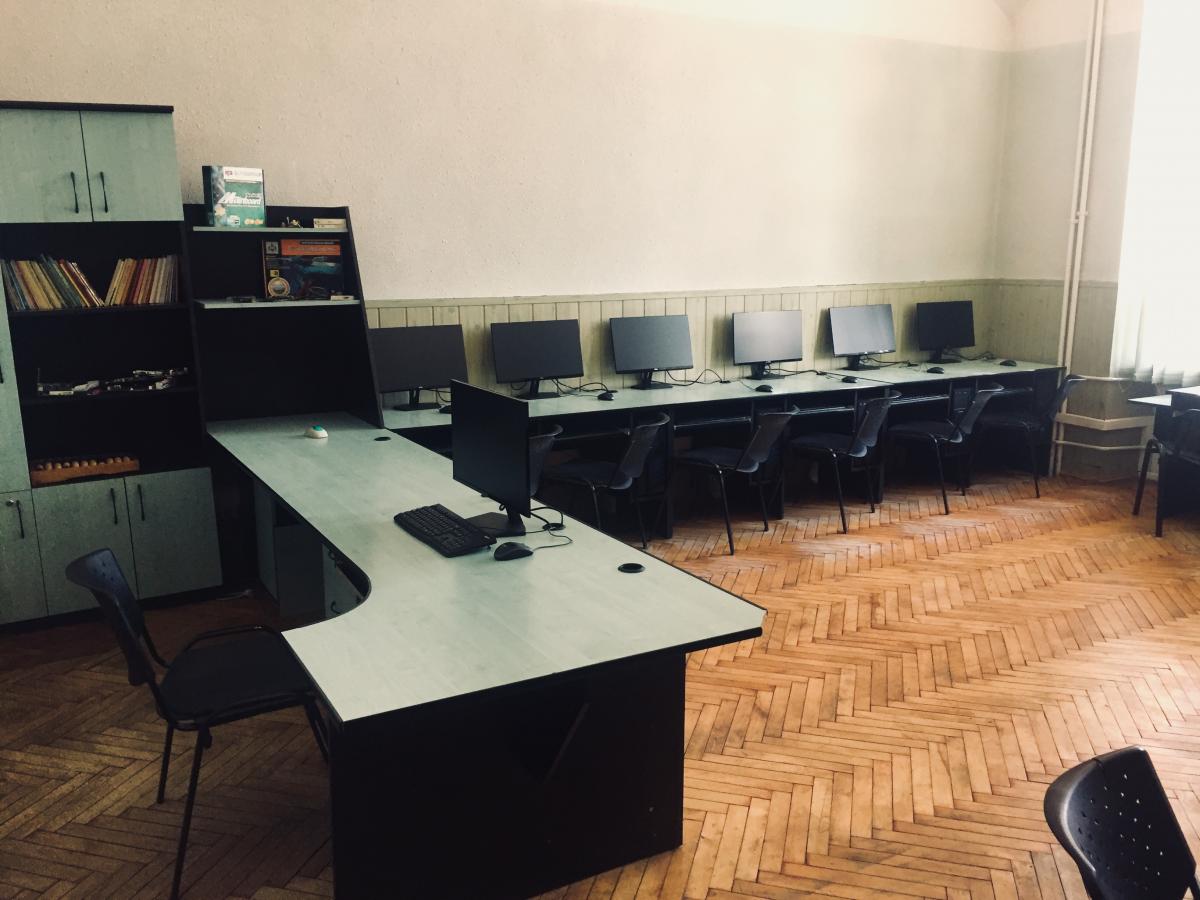
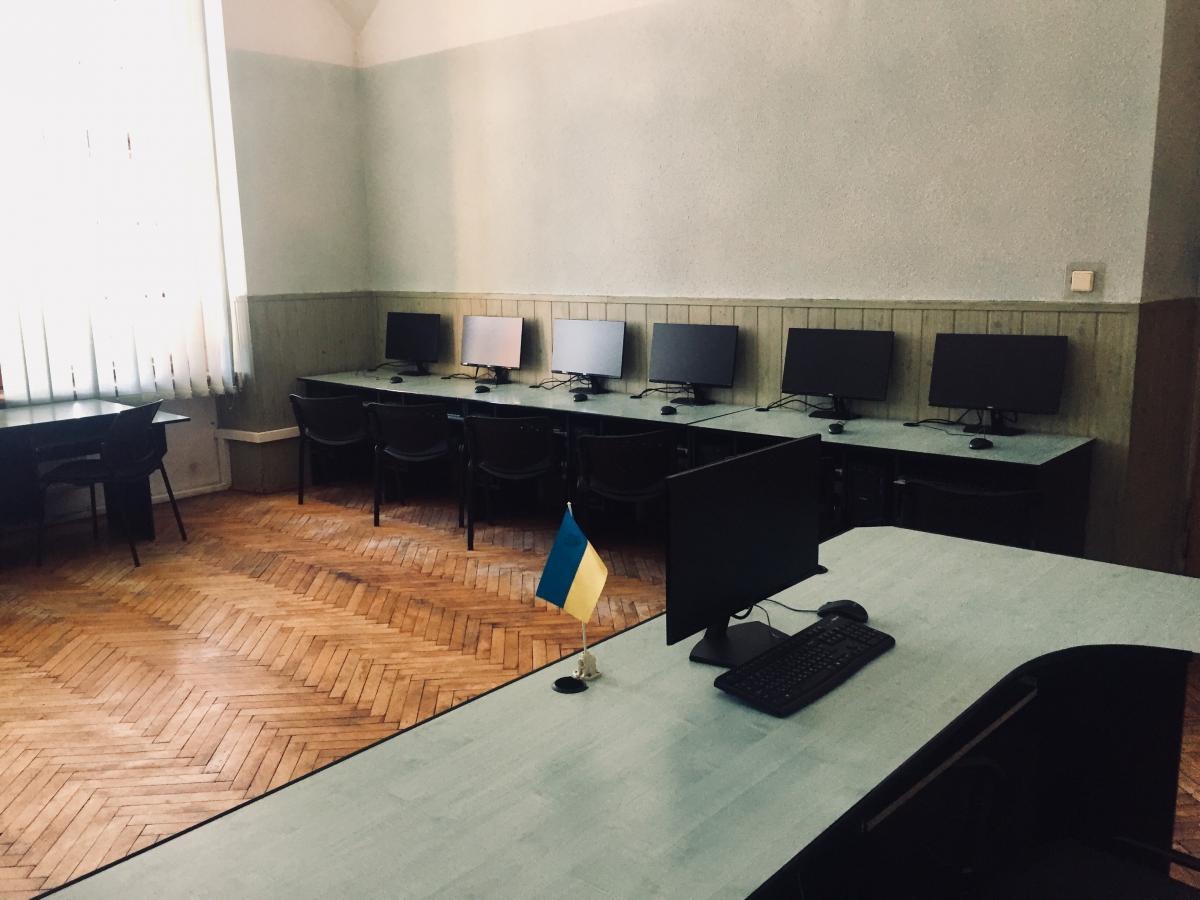
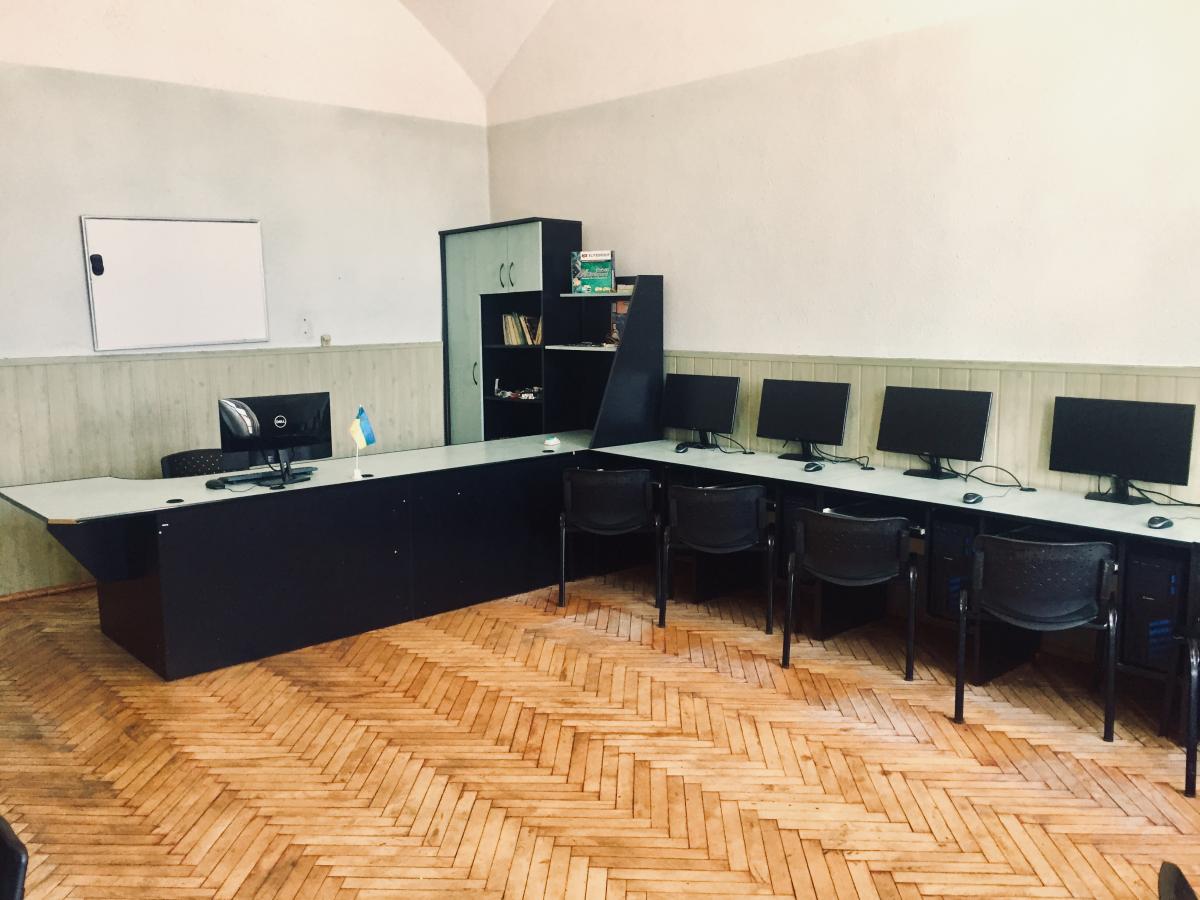
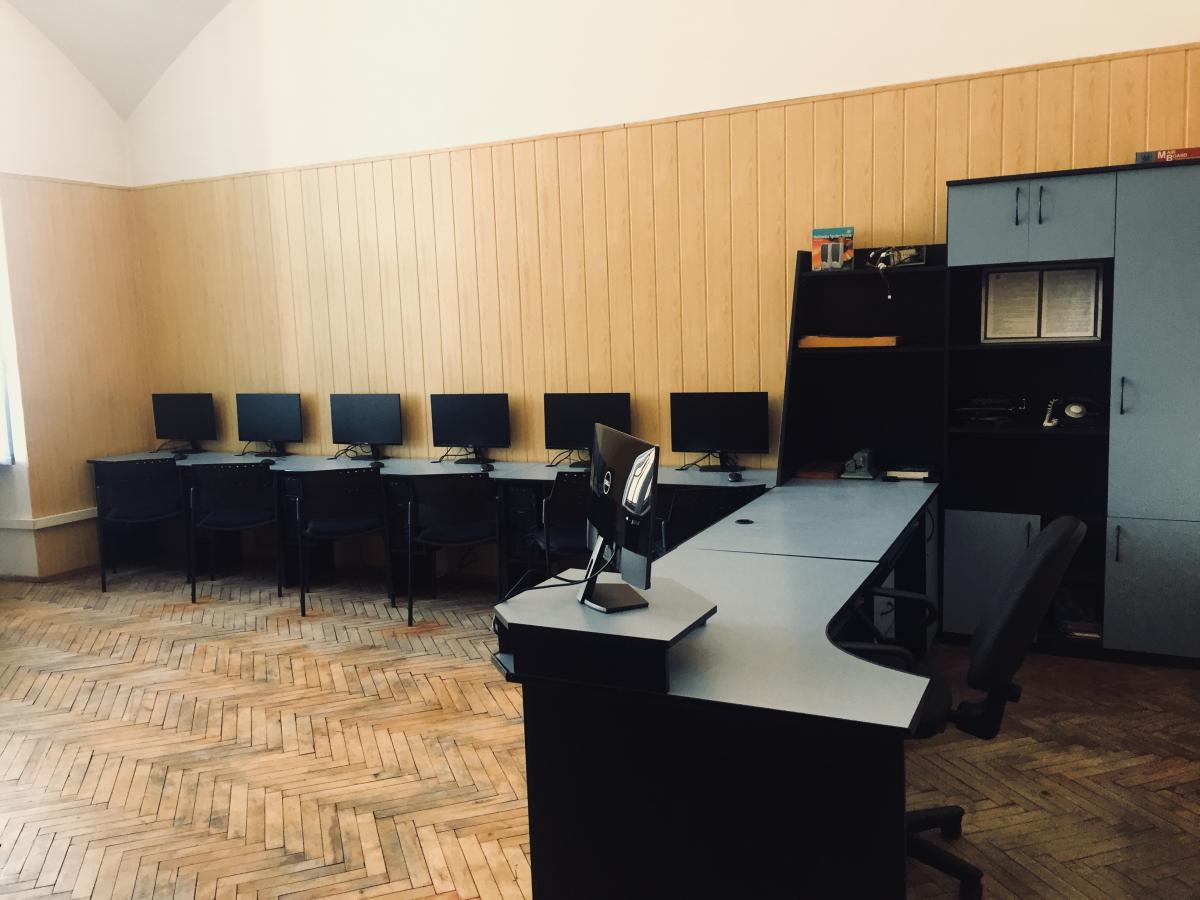
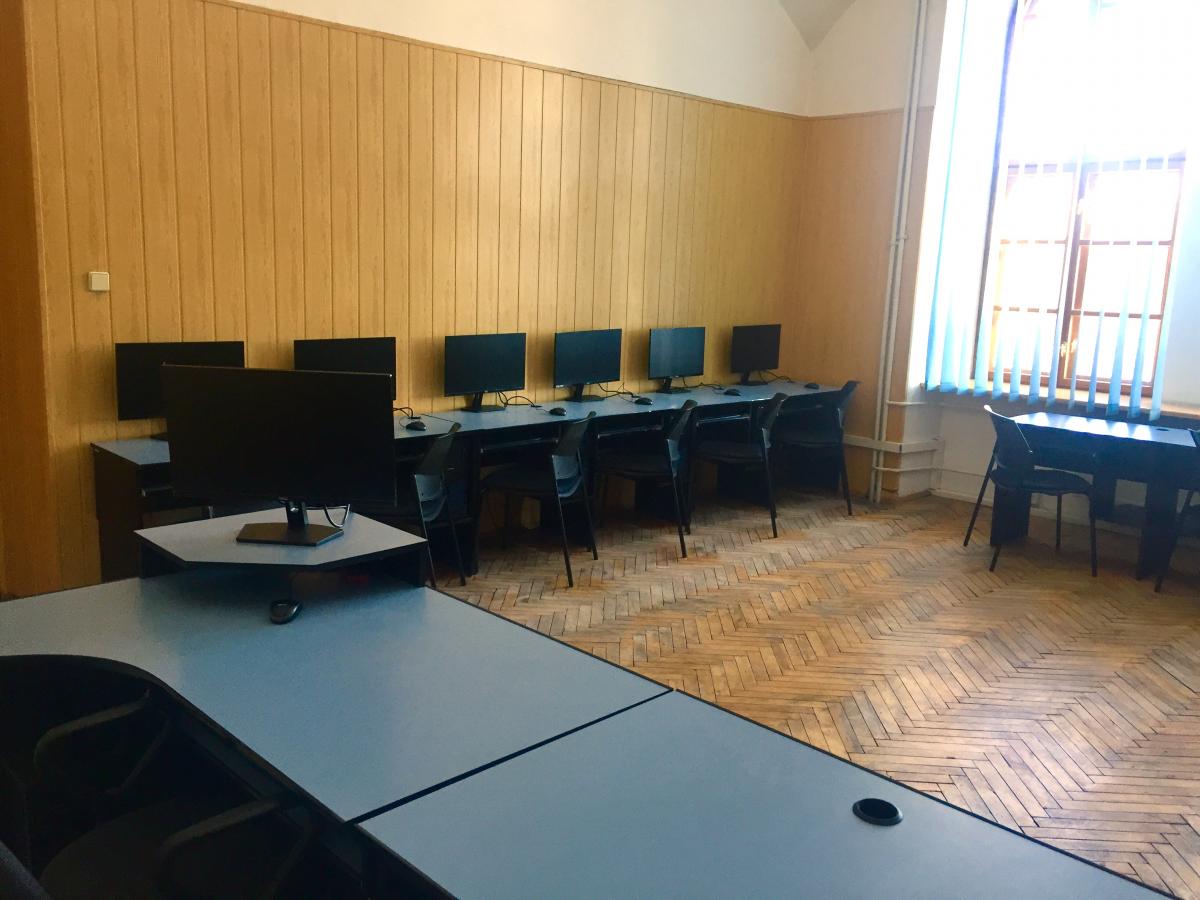
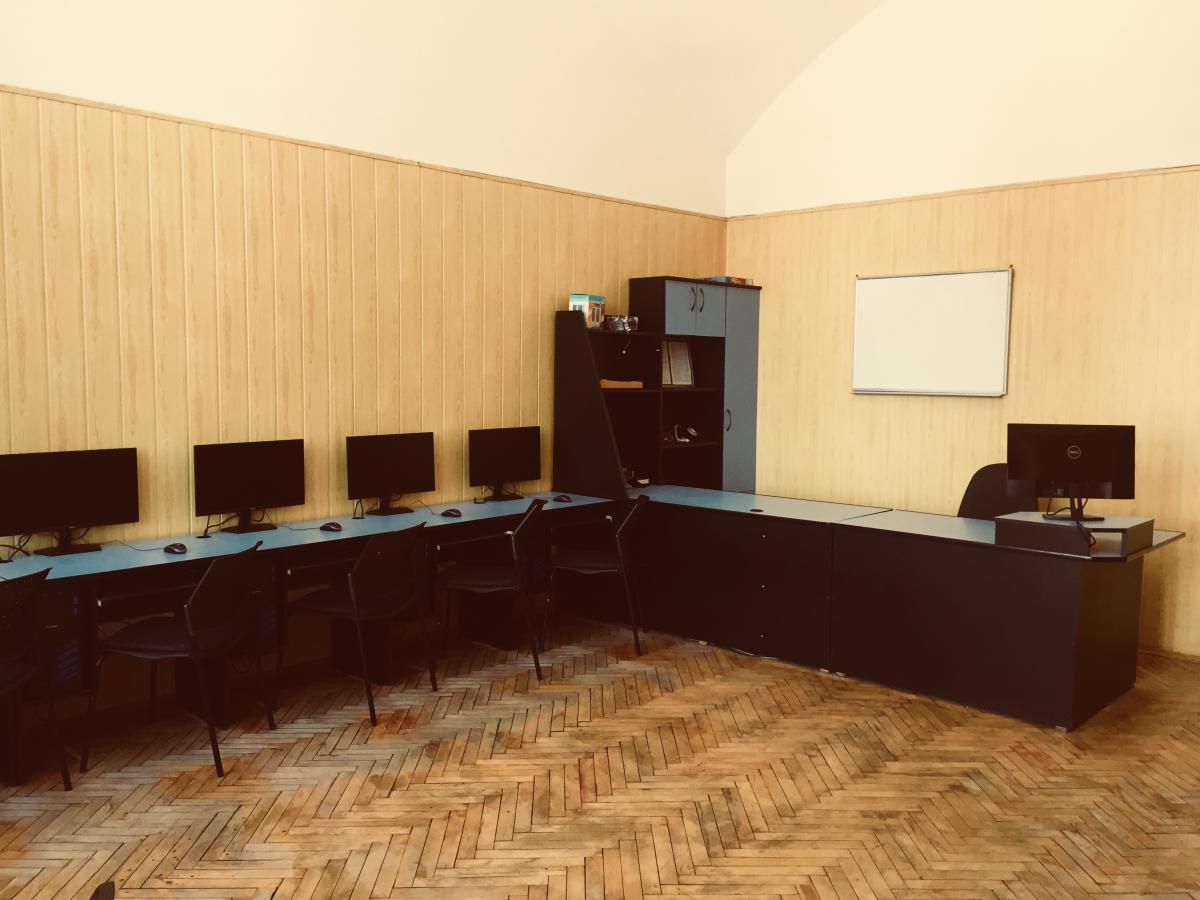
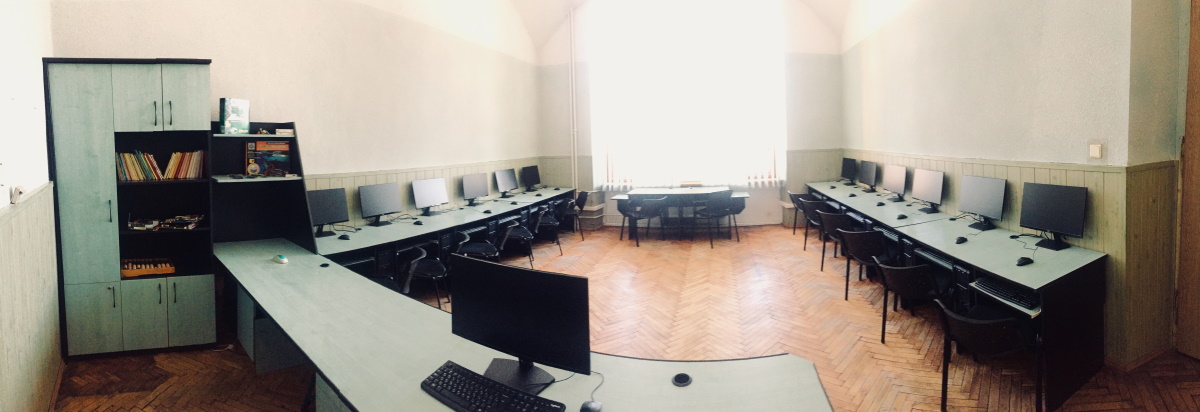
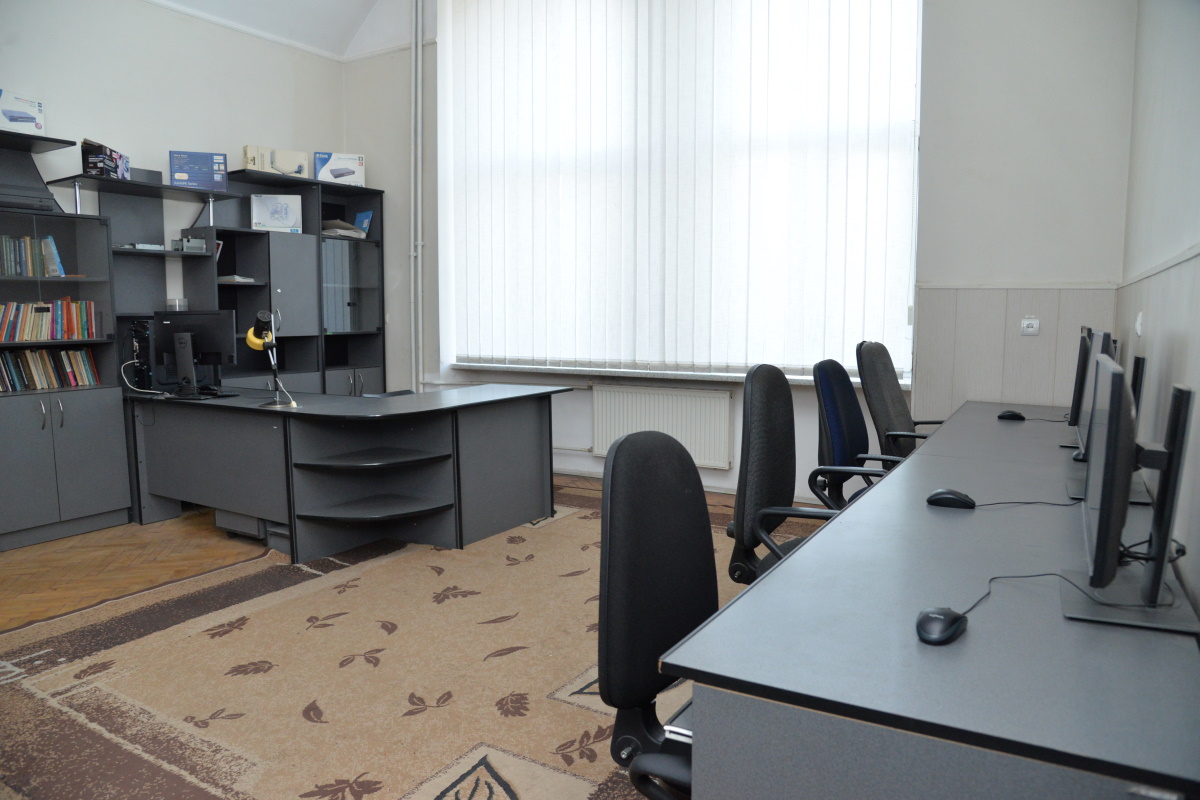

Material and technical base and equipment of laboratories of the department are used in both educational and scientific process. Modern technical equipment of laboratories and relevant software allows conducting research in the functioning of the student scientific society of the department, as well as in the implementation of its own R&D projects.
Areas of research:
Science students and cadets:
During the training, cadets and students are actively involved in the scientific work under the guidance of a qualified teaching staff of the department. The scientific society of cadets and students of the department, whose works have repeatedly participated and been distinguished at various competitions and conferences both at our University and at other educational establishments of Ukraine, is fruitful.
Cultural events, entertainment:
To promote healthy lifestyles, get involved in national cultural heritage, get acquainted with the way of life, traditions and customs of the Ukrainian people, the teachers of the department - curators of groups carry out tourist-sports hikes and excursions to places of interest of Lviv, visit theaters, museums, exhibition halls, art galleries, picture galleries, art galleries Museum of Folk Architecture and Life “Shevchenkivsky Grove”, cinemas and more.
Scientific research work:
- Computer simulation of ecology geophysical processes (prof. Starodub Y.P.);
- Analysis of the kinetics of absorption in oil spill (Babadzhanova A.F.);
- Decision-making in the extreme conditions of (Tkachuk R.L.);
- Features fire and technological safety of nuclear power (Tarnavsky A.B.);
- Adaptation of medium-duty vehicles for effective participation in fighting forest fires (Lavrivsky MZ).
- Models and methods of the project management investigation of the state of environment using geo informative systems technologies (Havrys A.P.)
Information for entrants:
Cadets and students of the department acquire the necessary knowledge and skills in the future implementation of state policy in the fields of fire and technogenic safety, civil protection, state supervision (control) in these areas and the activity of emergency services; state supervision (control) of compliance with and compliance with the requirements of the legislation in the fields of fire and technogenic safety, civil protection of the population and territories from natural and man-made emergencies
Cadets and students of the department in the process of learning master the following professions:
- a leading specialist in the chemical and radiation control sector;
- a leading specialist in civil protection;
- a leading specialist of emergency evacuation sector at district state administrations;
- specialist in computer modeling (programming) certification of soil quality, water, radiation safety monitoring;
- employee of the expert center for civil protection and technogenic safety;
- chief of staff of civil defense (civil defense) of an enterprise, institution, organization, etc .;
- specialist in environmental safety;
- employee of the department (emergency department) of the district administration;
- responsible for civil protection, fire and man-made safety of the facility.
Graduates of the department can work in the following positions:
1. In the system of the State Emergency Service of Ukraine:
- a leading specialist in the chemical and radiation control sector;
- a leading specialist in civil protection;
- a leading specialist of emergency evacuation sector at district state administrations (executive authorities).
2. At enterprises, institutions, organizations and bodies of executive power:
- chief of staff for civil defense of an enterprise, institution, organization, etc .;
- responsible for civil protection (fire and technogenic safety) of enterprises, organizations, institutions, etc .;
- employee of the expert center for civil protection and technogenic safety;
- specialist in computer simulation (programming), certification of soil quality, water, radiation safety monitoring;
- consultant at housing associations, village (village) councils.


